#sirenjose analyses and theories
Text
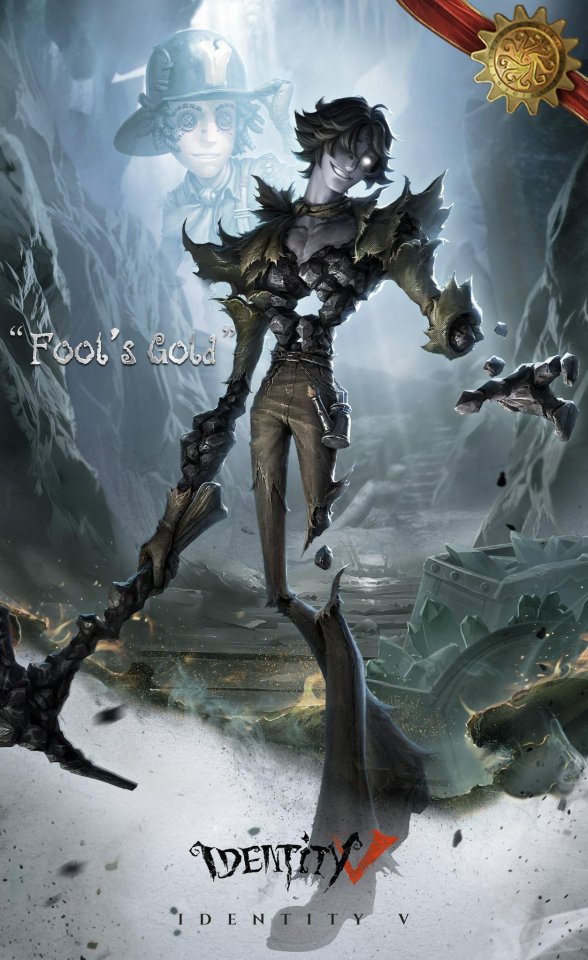
Facts and Theories related to Fool's Gold and Norton
Part 1: Facts and Theories about Pyrite aka Fool's Gold
TLDR - Facts:
comes from the Greek word for fire
the dangers of pyrite oxidation (sulfuric acid, sulfur dioxide)
pyrite can contain small amounts of real gold, called “invisible gold”
TLDR - Theories
Pyrite containing real gold parallel to Norton being good deep down
Fire connection to Infernal Sin
Pollution in Lakeside water and soil as well as cause of fish and plants dying because of Golden Cave?
Part 2: Facts and Theories about how Norton escaped Golden Cave
TLDR:
Norton didn't just simply dig himself out
Facts about mines, mine collapses, dangers, potential escape routes, etc...
Part 1
Facts
Pyrite (aka fool’s gold) comes from the Greek word ‘pyros’ meaning ‘fire’, and will create sparks when struck against metal or a hard surface.
It is capable of scratching glass while most knives won’t be able to scratch it.
In the presence of moisture and oxygen, pyrite oxidizes, releasing its sulfur content as sulfuric acid.
Pyrite rich waste from mining operations can increase acidity of surface water. This can harm downstream ecosystems, animals, and even pose a risk to humans.
Sulfur dioxide is produced by burning the pyrite in coal, which can combine with moisture in the atmosphere to create acid rain.
Pyrite oxidation is sufficiently exothermic enough to produce heat, and as the temperature rises, the coal heats up and in some cases cause it to self-ignite and cause fire. This is called spontaneous combustion, a very real problem in coal mines. Pyrite dust can burn even with only a little oxygen, and it burns well due to its sulfur content. Sulfide fires can burn for years.
Despite its reputation, pyrite can sometimes contain small amounts of real gold, although it is notoriously hard to extract. This gold is sometimes referred to as “invisible gold” because it isn’t observable by the naked eye or standard microscopes (you need sophisticated scientific instruments). It can come in different forms: either as particles of gold, an alloy where the pyrite and gold are finely mixed, and in defects (imperfections created when the pyrite crystals are forming) in the crystal structure . With the latter form, the more deformed it is, the more gold there is in the defects.
And the discovery of new gold deposits declining world wide, with the quality of ore degrading in parallel to the value of precious metal increasing.
Invisible gold is primarily found in pyrite and arsenopyrite, and this is now a common resource for the gold mining industry.
Theories
I really wanted to bring up pyrite having some real gold (even if the amounts are very small). Especially as I can draw a parallel with that to Norton, who may normally seem suspicious, but he isn’t entirely bad. He may seem unapproachable, but you may make progress if you dig deep enough and try hard enough. He isn’t completely “worthless”.
Pyrite coming from the word for fire connects well to Infernal Sin, while pyrite being a fire starter in the fast due to its ability to create sparks fits well with Norton’s how we see Norton causing the explosion in Golden Cave in his trailer.
Then regarding the sulfuric acid, this actually made me wonder if the contamination in Lakeside, revealed in Yidhra’s letters, could be related to or from Golden Cave.
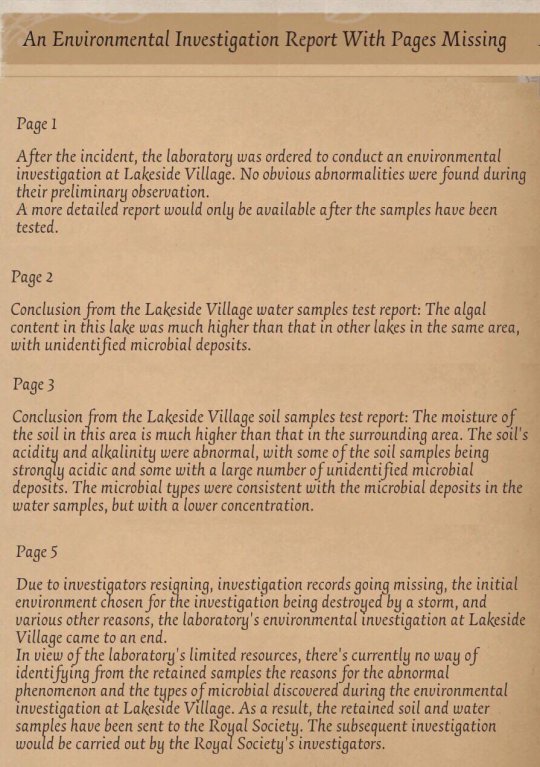
Ground water is water that seeps into the ground via rain or snow melt. As it makes its way underground, it can collect or react to the minerals and rocks down there, including pyrite, which can eventually result in the oxidation (and all its problems) I described earlier. This can percolate to form sediment at the bottom of rivers with mine drainage, which is water drained from mines. Acid runoff further dissolved heavy metals into water, and acid mine drainage can be increased by the action of certain bacteria (aka, sulfuric acid from pyrite can leech heavy metals from rock, and the acid can be worsened by bacterial action, resulting in this drainage becoming highly toxic).
Problems with mine drainage include contaminated drinking water, disrupted growth and reproduction of plants and animals, and corroding effects of acid on structures.
In general, sulfide rich and carbonate poor materials produce acid drainage. In contrast, alkaline rich materials, even with significant sulfide concentrations, often produce alkaline conditions in water.
Abandoned mines can fill with water (flood) because there’s no pumping occurring (the steam engine was 1st invented to solve mine flooding). This results in unabated chemical reactions, potentially making it very toxic, and this water can even discharge into lakes and streams, killing aquatic life and polluting the environment.
Further acid drainage can result from waste rock, which is material that must be removed to reach the ore. It is often deposited in piles close to the mine, and as it is exposed to air and moisture, it causes weathering, which can generate acid drainage.
Yidhra’s 3rd letter does mention “microbial deposits” in the water and soil as well as the soil’s “acidity and alkalinity”. So maybe it could be connected…?
Part 2
Thoughts regarding specifically how Norton escaped Golden Cave
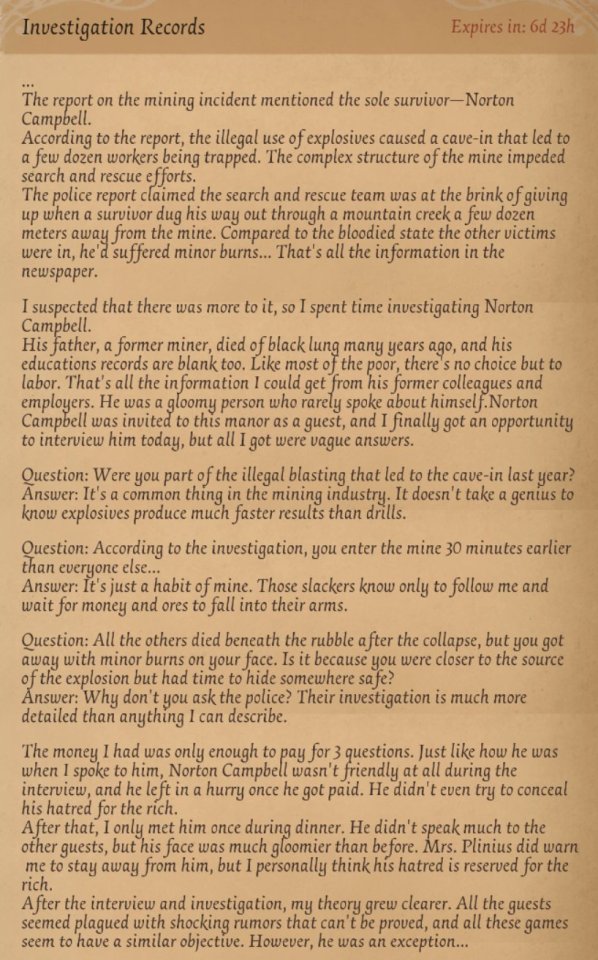
Norton’s 3rd letter states the police report claimed Norton “dug his way out through a mountain creek a few dozen meters away from the mine”.
It is unlikely Norton simply dug himself out from the mine.
Golden Cave’s backstory states it was “hundreds of meters” deep at least. Mines back in that day (late 19th century) were already 1000s of feet deep (1 was 700-900m = 2300 – 3000ft). Prior to the 1850s, miners could simply walk in to a mine to get where they needed to go, but later on, the mines became so deep, they had to use steam elevators to enable access to deeper seems.

We know Norton was trapped in Golden Cave for some time after the mine collapse considering we know he came out with meteorite chunks. Based on what we see on the lowest level of Golden Cave in game, this likely implies the meteorite was potentially at the bottom, meaning there’d be quite some distance to dig himself out.
The other issue is most miners don’t simply dig themselves out after a collapse. There’s nothing to support the roof and sometimes little space to put the material you remove, not to mention usually a lack of suitable tools. Trying to dig yourself out of a collapsed mine may even weaken the area near the collapse, potentially causing further collapses. This is why most miners usually have to wait to be rescued.
It is possible that Norton was able to access an alternate escape route. Mines were required to have more than 1 shaft following the Hartley mine disaster in 1862. If it or a raise (vertical or inclined passage) had a safety ladder, it’s possible he could work his way back up. During the Barnes-Hecker mine disaster (the mine was flooded), the sole survivor saved himself by climbed 80 stories (around 800 feet) in just about 14 minutes.
Another option is via an intake airway (or downcast shaft), which brings fresh air from the surface into the underground mine. Miners could feel the air to figure out a way out of the mine, and this was breathable air, free from fumes and dust in the case of a fire or explosion. A return airway (upcast shaft) is also an option, but not as nice of one due to the fact it carried air out of the mine to the surface, and this air could include dust, toxic fumes, and such. But miners have escaped via vents before (such as in the Quecreek Mine disaster, which they did to escape the mine as it started flooding).
And if acid mine drainage is potentially related to the pollution and dead animals/plants in Lakeside (Yidhra’s 3rd letter, Grace trailer/deductions), maybe that means there was drainage or some other hole into or out of the mine around there that Norton could’ve used to escape. Norton’s deduction 9 does make it sound like police didn’t expect anyone to survive, which could imply the normal entrances or exits were inaccessible following the collapse, meaning using an alternate, less known route might make sense. We know Norton was knowledgeable, and in the trailer we see him with a map, though based on how his coworkers in that scene look like they might take it from him, he might not have had that, but he may have at least memorized the different ways in and out, and thus how he could manage to escape (especially as explosions can damage the lifts they use to normally get down to the deeper levels).
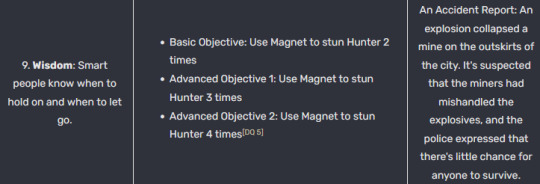
Norton likely survived due to being some distance from the blast. Some of his coworkers likely died from the initial explosion. The others potentially could’ve succumbed to lack of oxygen, potentially aided if any fires started as a result (which could further weaken supports or cause more collapses), or due to potentially high concentrations of firedamp further down. Afterdamp (choking gas) is a mix of toxic gases (carbon dioxide, carbon monoxide, and nitrogen) after a methane explosion, and it is just as deadly as the actual explosion. Symptoms include head swimming/disorientation, feeling very tired, difficulty doing anything or exerting yourself, and a desire to just close your eyes and go to sleep (followed soon by death from the lack of oxygen).
#idv#identity v#norton campbell#prospector#idv norton#identity v norton#idv prospector#identity v prospector#Fool's Gold#hunter norton#idv fool's gold#idv hunter norton#identity v fool's gold#identity v hunter Norton#sirenjose analyses and theories
36 notes
·
View notes
Text
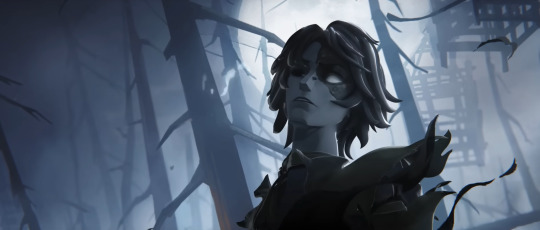
Hunter Norton Backstory Trailer Analysis
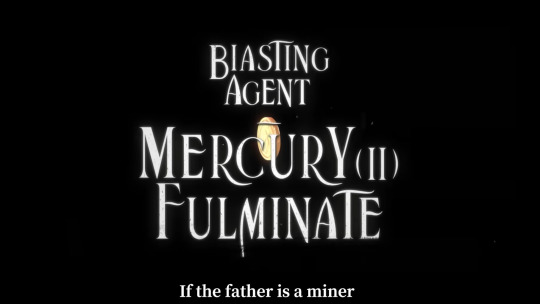
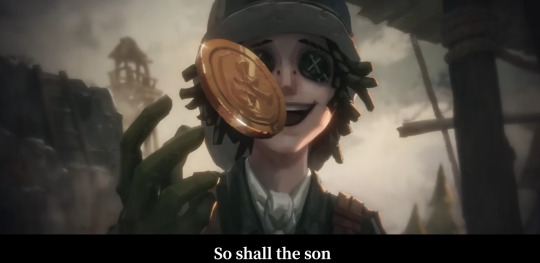
As a rule, the sons of miners follow the occupation of their fathers. Once Norton’s father died, and his mother also likely dead by then too, he had no other choice but to become a miner if he wanted to survive. Especially with how poor they likely were, Norton’s father (and mother) likely left almost nothing for their son, forcing him to work hard to support himself from a young age.
Based on Norton’s comment about living like a “rat” for 20 years, as he is 28 in the present, Norton’s father potentially died when he was 8 (his mother potentially died before then), leaving him an orphan.
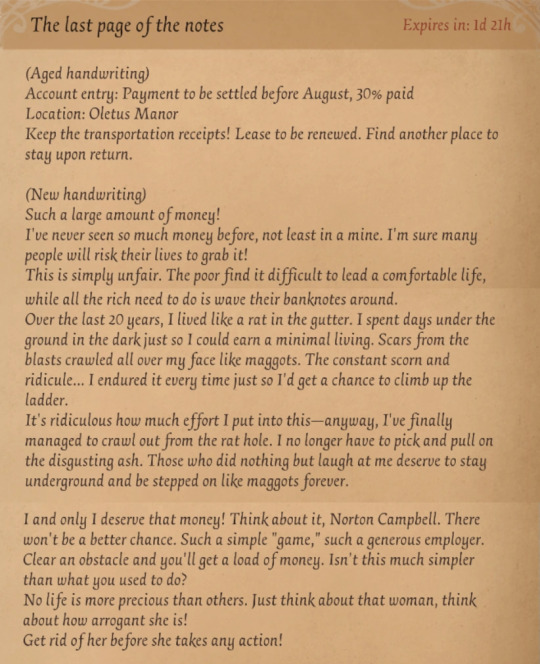
A Mine Regulation Act in 1872 prevented children under the age of 12 from working underground. Until then, he would likely have been kept to surface work, such as:
Sorting and transporting materials
Loading and unloading transports
Assisting with general maintenance and cleaning
Delivering messages
Etc…
An Educational Act in 1870, which applied to England and Wales, made schooling compulsory for boys between the ages of 5 and 10, while an Act in 1872 applying to Scotland made school compulsory for kids between 5 and 13.
Once he reached the age of 12, the Regulation Act in 1872 would continued to limit his work hours, which prevented boys between 12 and 16 from working more than 54 hours in 1 week or 10 hours in 1 day. It also required them to have 8 to 12 hour breaks between “periods of employment” (defined as starting when they leave the surface and ending when they return to the surface).
Once he was old enough, regular miners were expected to work at least 12 hour shifts (though this varied from mine to mine) on weekdays. And we know from Norton’s deduction 2 that he worked longer than any of his coworkers, while his 3rd letter states, as a habit, he enters the mines at least 30 minutes before the others.

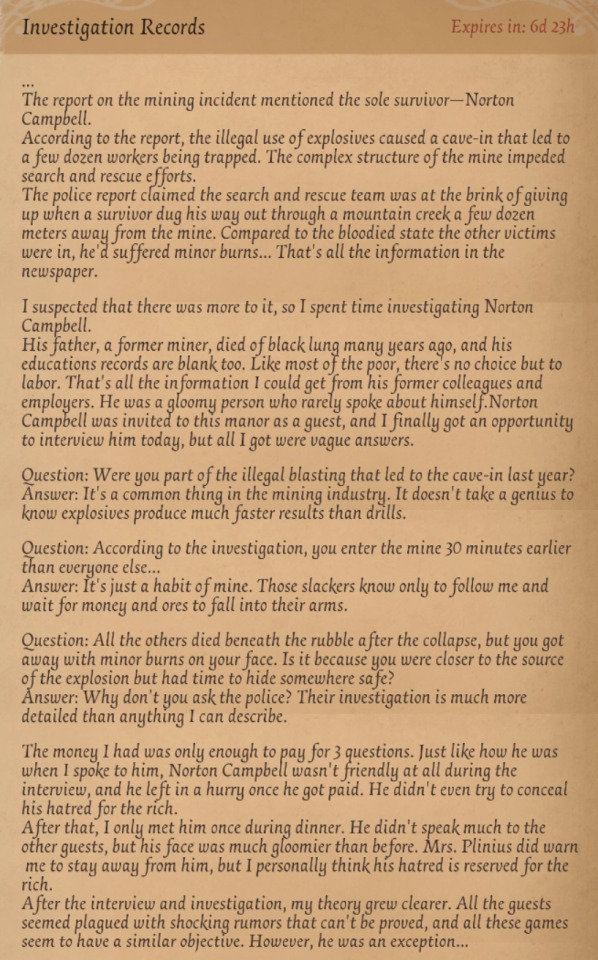
Conditions in the mine were hot, musty, and cramped (as mine owners didn’t want to spend extra to make them bigger), increasing the chance of accidents. We can actually see just how narrow the tunnels usually were in the trailer.
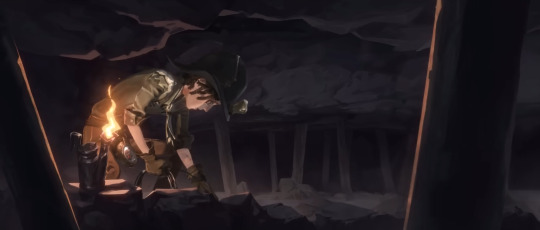

Miners also worked in complete darkness except for lighting they had to buy themselves. In fact, they had to buy much of their own equipment.
Unfortunately, wages for miners were incredibly low back then. Miners were paid by the quality of what they produced rather than by the hour, giving owners plenty of ways to reduce how they could pay their miner (including by lying about the quality or rigging the scales).
The average wage of coal miners in the 1880s was somewhere between 3s (s = shillings) and 5s per day, with around 4s being closer to the normal, and 5 only if you were lucky. 4 shillings was about $1.20. Generally though wages varied greatly in different districts. After spending on equipment, food, and rent, they could be left with maybe no more than 1s.
Going back to the trailer, it says “Blasting Agent – Mercury (II) Fulminate”. This is an explosive compound made from mercury, nitric acid, and ethanol. It was commonly used as a primary explosive in percussion caps and detonators during the 19th century. When struck or subjected to a shock, it would rapidly decompose and produce a violent explosion. Its role was to initiate the ignition or detonation of the main explosive charge, such as dynamite.
This is the stuff that we see him pouring into the dynamite.
Continuing, we see Norton smiling at a coin, but then his wrist is crushed by the other miners, who steal it from him, taunting him to try to take it back.
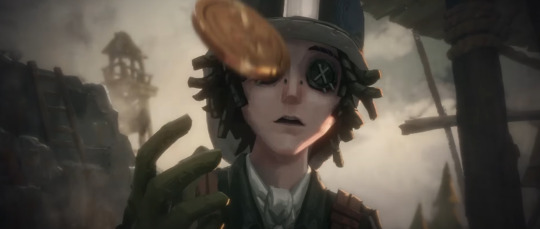

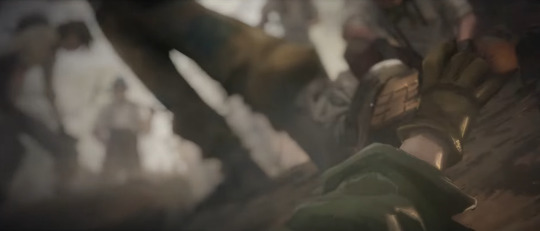
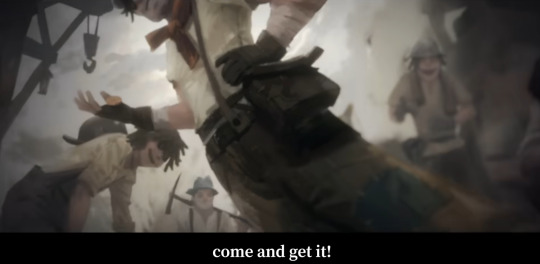
Norton actually smiling at the coin helps show Norton’s desire to get out of poverty, an idea he emphasizes later when he describes poverty as a “curse”.

But as we see in the Famitsu Article, people didn’t understand why he tried so hard. It “intimidated” them. Then in Norton’s 2nd letter as well as in this trailer, we see that he was ridiculed by his coworkers. They didn’t think it was possible for him to achieve such a goal. This is reflected with how essentially, at that time “Englishmen recognized if he is in a certain social grade, he is likely to remain there. He’ll never reach a higher class, and didn’t rebel”. Each class “cheerfully” accepted “the lot which providence has assigned” to them.
Norton was different though. He says in the trailer “I once thought the same” after it talks about sons of miners became miners themselves.
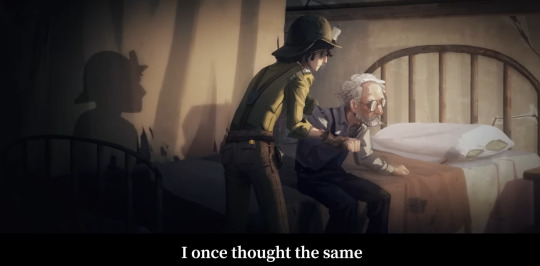
He may have initially accepted the same thing everyone else did, but things likely changed over time, the longer he was forced to live this sort of life.
There’s also a good chance part of his change was from working with people like Benny. He learns from them to improve himself (and hopefully improve his chance at earning more), but he also sees how these old miners are, which emphasizes in his brain he doesn’t want to end up like them. He doesn’t want to end up in hospice or stuck in poverty his whole life like they did, just waiting for the day they die.
Norton worked hard, harder and longer than everyone else, in the hopes eventually this would be enough to improve his life, to make it even slightly close to what most would consider a comfortable life, even if it meant only the basics. But it wasn’t enough. The mine owners were greedy. The other miners were all in it only for themselves. His wages were miniscule, and his daily and weekly expenses pretty great. Especially with how back in that time period, mine owners had ways where they attempted to keep their employees indebted to them, to force them to keep working for them, as well as improve their own personal profits as much as possible.
Norton was surrounded by these sorts of people forced to live in such a cruel environment, watching the rich get richer and the poor get poorer. This is reflected in his 2nd letter where he says “This is simply unfair. The poor find it difficult to lead a comfortable life, while all the rich need to do is wave their banknotes around”. He describes all the pain he’s gone through just at the chance to “climb up” out of poverty before describing “how much effort I put into this” as “ridiculous”.
His hard work is exemplified by his 3rd deduction, which describes how he’s done so well his employers always attempt (but fail) to keep him for longer. He works to learn, to improve his skills, and better himself at the chance at earning more and thus potentially work his way out of poverty faster.

We can also see it during the trailer, with him surrounded by all these books and other things.
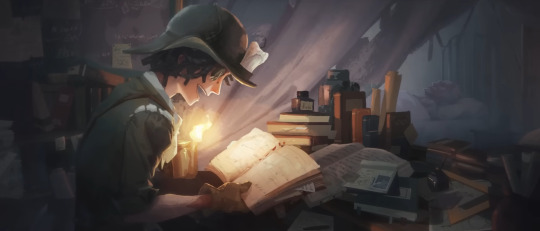
This quality of his, where he likes to teach himself, to learn, and to improve himself has been implied at other points by Netease, such as by several of his skins or even from part of other collabs, like B.Duck, which described Norton as “full of curiosity” and “likes learning”. It also described him with a “desire to act at MAX” or “highest level of execution”. This means he’s the type of person to put all his effort into whatever he does.
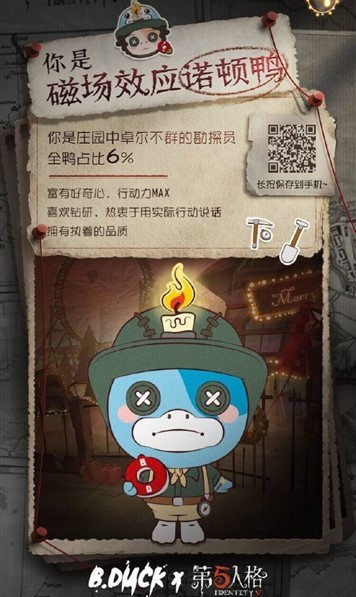
It just wasn’t enough.
We even see the sort of suffering this life has forced him to endure, as in the trailer it shows him coughing due to the damage his lungs have suffered due to his life as a miner.
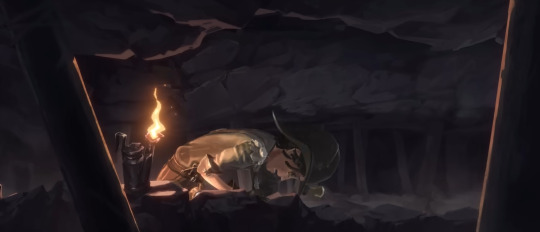
Hard work wasn’t enough. This is why he eventually turned to the list of 13 mines he learned from Benny, seeking to instead attempt to escape poverty by finding gold.
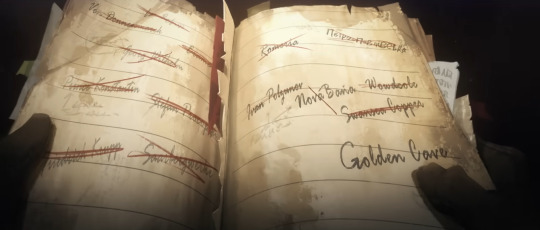
As explained by @metalIurgy and @Deskdeas, each of the names on this list are European mines or people.
(Also, there seems to be 15 names total on the list, rather than 13)
Von Donnersmarck: House of Donnersmarck, prominent aristocratic family that originated in the region of Silesia. Owned mines.
Georg Wilhelm: Russian military officer and engineer who specialized in mining
Prince Konstantin: prince of Russia, killed in a mining shaft
Ștefan Procopiu: physicist who researched electricity and magnetism
Friedrich Alfred Krupp: German industrialist, developed Krupp steel manufacturer and arms manufacturing company
Saarbergwerke: mining company that operated in the Saarland region of Germany
Romeria: religious pilgrimage (Spain or spanish speaking countries?)
Petro-pavlivska (''Петро-павлівська''): black coal mine located in the Eastern part of Ukraine
Nova Baňa: silver and gold mining site in central Slovakia.
Swansea Copper: Welsh copper mines
Eramet: French multinational mining and metallurgical company
Ivan Polzunov: Russian engineer known for his contributions to steam engine technology
Wowdcole: ?
(Sorry, I can't read the 15th name crossed out in the top left corner of the list)
We know from Norton’s 5th deduction that he tried and failed to find anything at any of the other 12 mines, leaving him with only Golden Cave left.
Back to the trailer, we see him with a map.
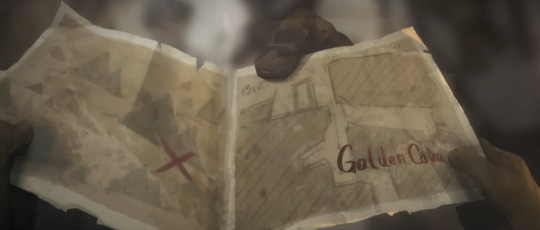
The left side looks like it should be a map of Lakeside and the surrounding area, with Golden Cave being the X at the base of the mountains. Count Barriere is the owner of this land, and also the owner of Golden Cave. The right side should be the representation of a map of the mine itself.
Considering how earlier Norton’s coworkers stole Norton’s coin, it’s possible they essentially tried to do the same thing here. Saw him looking at the map, then took it for themselves. Like how Norton’s 8th deduction includes “you need more helpers”, they may have forced him to take them along, and why they explore it on their own without Norton. Especially with the looks on their faces in that scene not showing they had any good intentions.
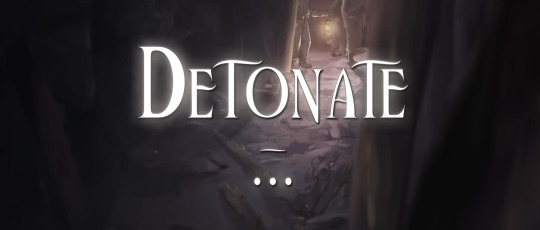
(A lot of what I’ll say next is said very well by @Yaboku_samaa)
Norton seems to have set all this up in advance, before they came through the mine.
Next we see Norton’s inner conflict. A conflict between morals and vengeance represented by survivor Norton vs Hunter Norton. His Hunter side manages to win out by telling Norton that this is what they deserve, it’s revenge for all the pain and ridicule he’s been put through, all in silence, all without fighting back. He’s forced to keep a façade. To keep his true feelings hidden if he doesn’t want a penalty or reduction in wages. He’s tired of having to live such a hard life of constant suffering and humiliation and hopelessness, and thus why he had hit his limit and the side represented by his Hunter version won out.
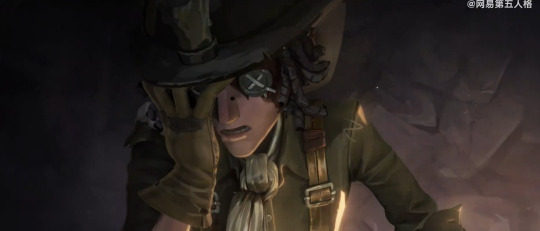
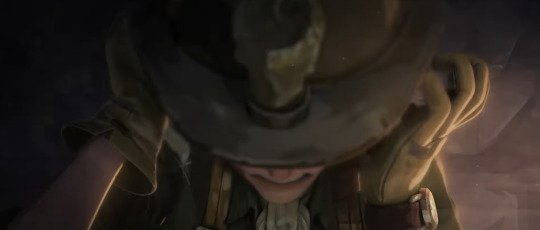
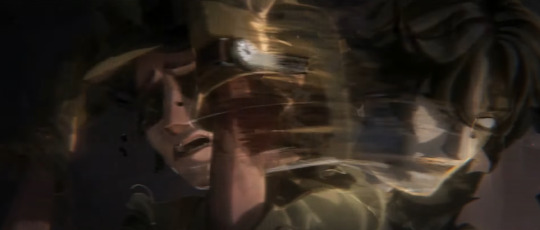
(I’m not going to push the idea too much, but it’s possible Norton may have bipolar disorder. That or DID, especially with how he literally talks to himself in his 2nd letter. Especially as both can form in children or young adults who experience long-term physical or emotional distress or abuse. Causes can include childhood trauma (like neglect, abuse, trauma, losing someone like a parent), stressful life events, genetics, etc…)
This decision is shown during the trailer when Norton says “There are ways to make a change”.
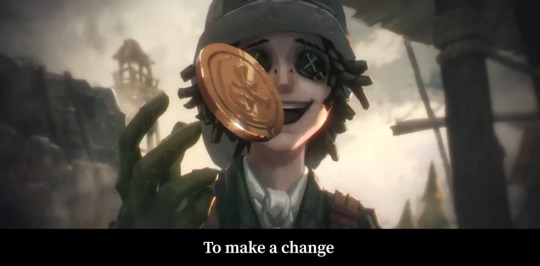
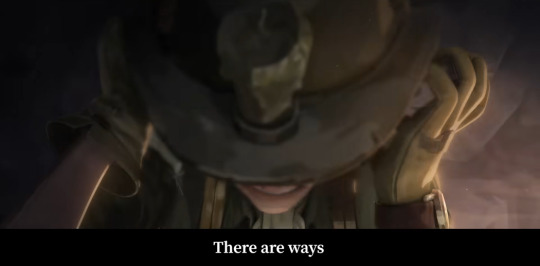
Norton’s 2nd letter does an accurate job of summarizing everything:
“Over the last 20 years, I lived like a rat in the gutter. I spent days under the ground in the dark just so I could earn a minimal living. Scars from the blasts crawled all over my face like maggots. The constant scorn and ridicule... I endured it every time just so I'd get a chance to climb up the ladder. It's ridiculous how much effort I put into this—anyway, I've finally managed to crawl out from the rat hole. I no longer have to pick and pull on the disgusting ash. Those who did nothing but laugh at me deserve to stay underground and be stepped on like maggots forever.”
And the trailer visually showing Norton’s inner conflict matches up very well with how quite clearly Norton in his 2nd letter is arguing with himself. The side represented by Hunter Norton is likely the version talking right now, trying to convince him (the side represented by Survivor Norton) to kill the female, “think about how arrogant she is” and all the money he’d get. The fact he is trying to convince himself shows that Norton doesn’t want to do it, and how he isn’t willing to do anything for money. His hatred for his coworkers for their treatment of him for so long was enough for the side represented by Hunter Norton to convince him to trigger the explosion on them, but that motivation doesn’t exist here. Right now, his less moral side is trying to motivative him with money and thinking about others as “arrogant” and essentially mean, as well as the doubt that she could do something to him.
But that may not be enough to convince him next time to actually do it if he’s given a chance. At Golden Cave, that was his last chance to try to find gold. He’d gone through 12 other mines (and 20 years of pain on top of that) with nothing to show for it. Norton may be very stubborn and determined, but even he was growing so very desperate, which is shown well by Norton’s 5th deduction as well as by the trailer itself. So it makes sense that Norton was mentally not in the right place and vulnerable to the sort of temptation we see him going through in the trailer.

Norton is alone. No family. No money. Suffering from lung problems. Has never been shown kindness and forced to grow up in a very cruel environment. The only thing keeping him moving forward and losing all hope is by focusing on his goal of getting out of poverty and achieving some form of a comfortable life with at least the basic necessities. This is shown very well by Norton’s 4th birthday emote “Savings”, where Norton takes out a single gold coin and thinks about simple worn clothes and a loaf of bread, while the description reads “Endure it, Norton. You’re almost there”.
For years he attempted to push on, but little by little, his coworkers, his employers, his environment, it all chipped away at him until he felt he had no other choice. I believe the trailer does a good job of emphasizing how his main motivation wasn’t greed but desperation, hopelessness, and the pain he was subjected to by his coworkers and everyone. It’s life or death, and this mine is his last chance, and his deep misery that pushes him over the edge, so it’s no wonder he doesn’t care about anyone anymore. He’s always been alone, always had to be the one to look out for himself. No one else could be trusted. They would only take advantage of him or even potentially steal what little he had. Yet even still he hesitated to pull the trigger, which I think says a lot about Norton.
Despite the decision being made, he doesn’t run after he sets off the explosion. He accepts what happens. There’s no way he didn’t know what was going to happen, not with how long he’s worked as a miner, and how much he’s learned in his own time. It could be the side represented by his survivor version sees the scar as punishment for his deeds. It could be he knew if he wanted to get his revenge he had to deal with the potential scars.
But he was here not just for revenge, but for the chance at finding gold. Hunter Norton’s character backstory says the accident brought Norton “Golden Luck” or “a gold rush of fortune”, so it sounds like he did find something.

We do know he at least found the meteorite, which is what he made his magnet from, so this could be what is referred to in Hunter Norton’s backstory.
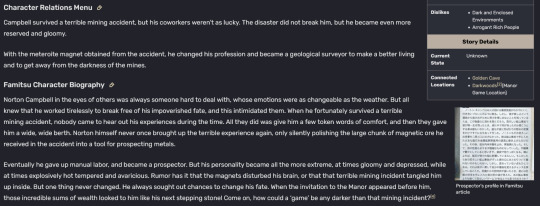
Along with the above, we could connect whatever his “golden luck” was with Memory’s comment during Time of Reunion, where she says “they seemed to be looking for something other than ore”.
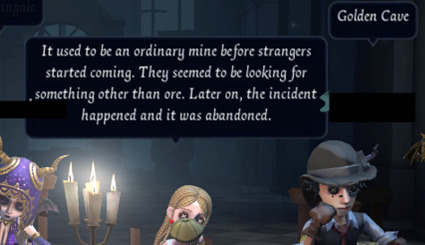
This is repeated during AoM with a newspaper clipping about rumors being false of precious metal ore in the mine.
Considering Golden Cave’s rumor is “despite not a single piece of gold was ever found, Count Barriere still got what he wanted with this land”, these statements should be talking about the same thing.
It’s possible Barriere was after the meteorite, especially as the only things we know that came out of that mine after it collapsed were Norton and the chunks of the meteorite he carried.
There are potential parallels from Lily’s essence, which connects to Golden Cave, and her essence story says “The mine is filled with special phosphorescent ores, which brought wealth to their ancestors but also cursed them with phosphorescent illness”. Considering in the famitsu article it says the magnet aka the meteorite may have been affecting his brain, it’s possible the “phosphorescent ores” is meant to parallel the meteorite.
If that is what Barriere is after, maybe there’s a chance he reached out to Norton afterwards, and he could’ve been the one to offer Norton all that money in exchange for killing some female. Especially when we know Count Barriere has a lot of money based on Lily’s backstory, as he even offered her enough to survive for 2 years and even more via making her the owner of the IOU likely belonging to Orpheus for him buying Oletus Manor.
Anyways, we also know from Norton’s 3rd letter that he “dug his way out through a mountain creek a few dozen meters away from the mine” with only “minor burns”. We also know from the Famitsu Article that people didn’t talk to him, they said a bare minimum then kept a “wide berth”, and considering the very visible scar on his face, it is possible this was the reason they avoided him (they were frightened of him. Like we see at the end of the trailer, it is possible people saw him as a “monster”, especially back then when these sorts of things weren’t treated or seen as kindly as today).
#idv#identity v#norton campbell#prospector#Fool's Gold#fools gold#Hunter Norton#idv norton#identity v norton#idv prospector#identity v prospector#idv fool's gold#identity v fool's gold#idv fools gold#identity v fools gold#idv hunter norton#identity v hunter norton#sirenjose analyses and theories
348 notes
·
View notes
Text
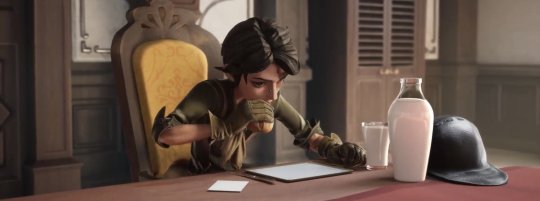
Analysis of the Food/Diet of the Lower Class in the Victorian era
(It was a bit tricky for me to find sufficiently detailed answers about the time and group I was looking for, as I wanted a bit more than the basics. Apologies for any mistakes)
Bread was a staple of the lower-class diet, such as wholemeal, rye bread, unleavened bread (like oatcakes), etc.. For the poor, it was often made of cheap-quality flour and likely denser than modern bread.
These could be supplemented with whatever vegetables that were cheapest as well as locally available at that time of year. Onions were among the cheapest (half penny for a dozen, cheaper if they were bruised) and available all year. They were more expensive in late spring, at which point they could be substituted by leeks. Watercress was another cheap staple (halfpenny for 4 bunches from April to January/February) and were regularly eaten at breakfast. Cabbage was cheap and easily available, along with broccoli, with lettuce and radishes available in summer. Carrots and turnips were inexpensive staples, especially in winter, and they along with cabbage were often used in stews and soups.
As for fruit, apples were the cheapest and most commonly available (from August to May). Cherries were also fairly cheap (from May to July). Pears, blackberries, and plums were available throughout autumn. Then there were gooseberries, plums and greengages (in late September), raspberries, and strawberries. Not all fruits were affordable, like oranges, which were imported from Spain in winter but were expensive and often given as gifts, and pineapples, which were a sign of wealth.
Potatoes were another staple and were prepared in various ways, including boiled, mashed, roasted, or fried. They grew well in Britain’s mild weather, making them easy to produce and sell, meaning they were cheap and thus became a frequent meal.
In terms of meat, the lower class ate it infrequently, maybe once a week, with the worst off even less often. Pork was 1 of the most common types of meat, when it could be afforded.
As a result, the poor made the most of it (using and eating every part of it). For example, a cook would boil a piece of beef or mutton with vegetables one day (probably Sunday, the only day many people had off from work), then return to the boiling pot the next day and skim the fat off from the top to be used for frying or pie crusts. Then he or she could set the liquid back to boiling, adding a stingy amount of oatmeal (one recipe recommends a tablespoon of oatmeal for every pint of liquid) to produce another nourishing meal from the broth. Recipes call it a pot liquor soup; we’d more likely call it gruel.
Gruel, made by boiling grains, like oats, rice, or barley, in water or milk, was a common food option for the poor as it required minimal ingredients and was easy to prepare. It often served as a breakfast or basic meal.
Porridge refers to a thicker and more substantial version of cooked grains, usually oats, in water or milk. It was typically cooked for a longer amount of time, resulting in a creamier and heartier consistency. It was also a popular breakfast choice due to it being nutritious and filling.
They tended to buy cuts and trimmings of meat no one else wanted, which were referred to as “block ornaments”. Examples included sheep’s organs, shanks, gristly bits, and heads. Most of these cuts were tough or didn’t have much meat on them, but they could produce a filling broth. Tripe (lining of stomach of animals like cattle, sheep, and pig), liver, meat on the bone (shin or cheek), and offal (aka organ meats like brains, hearts, sweetbreads, liver, kidneys, lungs, and intestines) were also cheap.
Chicken was rare, as the birds were kept for eggs, and usually not eaten unless the bird stopped laying eggs.
Later in the Victorian era, bacon became a popular choice at breakfast (alongside kippers aka a type of fish made from herring, eggs, and porridge).
Drippings was another common part of the lower class diet. Drippings refer to the fat that is collected as a result of cooking meat. When meat, such as beef, pork, or poultry, is roasted or grilled, the fat present in the meat melts and drips down into the pan or tray. This fat is then collected and saved, typically in a container or jar, for later use. They add flavor and richness to dishes and are commonly used for making gravies, sauces, or to enhance the flavor of roasted vegetables, as a few examples.
Since meat was a luxury, the lower class tended to go for cheaper proteins, like eggs and legumes.
Many East End homes kept hens in their backyards, with a couple hens able to produce up to a dozen eggs per home per week. Hard cheeses like cheddar was produced countrywide and so available all year round, meaning it was able to enter the diet of the lower class. It was a good protein, kept well, and even stale it could be eaten toasted with bread.
Regarding legumes (ex: beans, peas, peanuts, lentils, etc…), they were a cost-effective source of protein, fiber, and nutrients. Dried legumes were more affordable and available all year round. Beans (good from July to September) were a staple for many lower class, often cooked in stews, soups, or baked dishes. Peas (affordable from June to July) and lentils were also commonly consumed.
In terms of drinks, tea was very common. It became more affordable with the help of increased trade, improved transportation, and advancements in production methods. The poor drank tea that tended to be weaker, as they reused the tea leaves several times before disposing of them. Black tea was common, the most popular being those imported from countries like China and India.
Milk was widely consumed but not usually in large quantities, due to cost and adulteration fears (aka fear of contamination). Beer was also common (made with low alcohol content so you didn’t get drunk), even for women and older children, as water wasn’t safe to drink back them (easily contaminated, but the brewing process killed off the germs). Coffee was another option, but it tended to be more expensive than tea, beer, or milk.
Sugar became cheaper at least after 1874, but still tended to be relatively expensive, especially for those on lower incomes. Thus it remained more of a luxury item and consumed in mostly smaller quantities or for special occasions.
Butter, like sugar, would’ve also been considered a relatively expensive item, and thus not as widely consumed. Instead, they used cheaper options of fat, like lard and dripping.
Nuts were another slightly more expensive item. But there were some options if a poorer individual could afford them. Chestnuts were the most common (favorite street snack in chestnut season, running from September to January). There were also filberts and hazelnuts (available from October to May) and walnuts (seasonal). Imported almonds and brazil nuts were more expensive, but commonly consumed around Christmas as a “treat”.
Even if they could afford things like sugar, butter, or nuts, the lower class likely would’ve typically used their income on more basic necessities and things they needed for their job or life.
Individuals were paid on Saturday, and that plus the absence of refrigeration affected the weekly menu. It’s possible the lower class at least may have possessed basic cooking utensils, like a skillet, pot, or kettle. The ‘best’ and relatively most expensive meals were taken on Saturday evening and Sunday, though the poorest would often buy food at the end of Saturday trading, at the cheapest possible prices. Menu choices became cheaper through the week: purchases of food would diminish in quantity as the food budget shrank, and meat would often only be purchased once a week, though vegetables and fruit were usually purchased and consumed on a daily basis.
The very poor might purchase cheaper older fruits, vegetables, and meat on the verge of edibility, though this didn’t really diminish the nutrients in them much.
The lack of refrigeration facilities meant that meats eaten hot on any one day were almost inevitably consumed (cold) on the second day. Any more leftovers were, due to incipient spoilage, curried or hashed on the third day. Spices and the higher heat involved in frying the hash would disguise any taint to the meat and lessen the chances of food poisoning.
Men worked on average 9–10 hours per day for 5.5-6 days a week, giving a range from 50–60 hours of physical activity per week. Factoring in the walk to and from work increases the range of total hours of work-related physical activity up to 55–70 hours per week. They likely required around 5000 calories a day.
The daily wage for poor miners back then may have been around 3-4 shillings, with the weekly wage then around 18-24 shillings. In dollars, 3-4 shillings was likely around $1. In today’s money, 3-4 shillings a day may be around £4 to £5 or $5 to $6.
#idv#identity v#norton campbell#prospector#fool's gold#fools gold#hunter norton#idv norton#identity v norton#idv prospector#identity v prospector#idv fool's gold#identity v fool's gold#idv fools gold#identity v fools gold#sirenjose analyses and theories
149 notes
·
View notes
Text

Hunter Norton - Short Analysis/Notes
Wolframite’s arm is made of pyrite aka Fool’s Gold. Hunter Norton’s name is “Fool’s Gold”

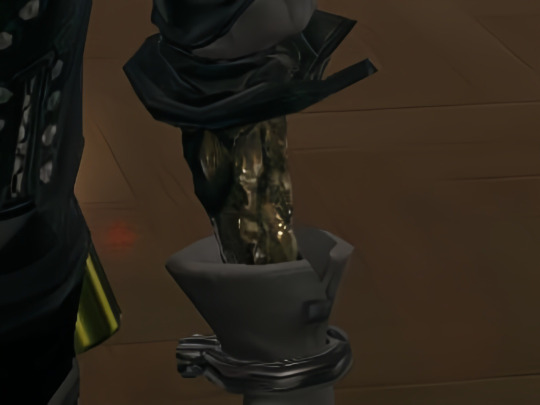

Lily’s essence where Fluorite and the others are affected by “phosphorescent illness” which “gradually erodes the skin” and causes them to “yearn for captivity”. We see in Fluorite’s design notes that this “phosphorescence” caused people’s skin to begin transforming into different ores. Hunter Norton is also made of rocks/minerals.

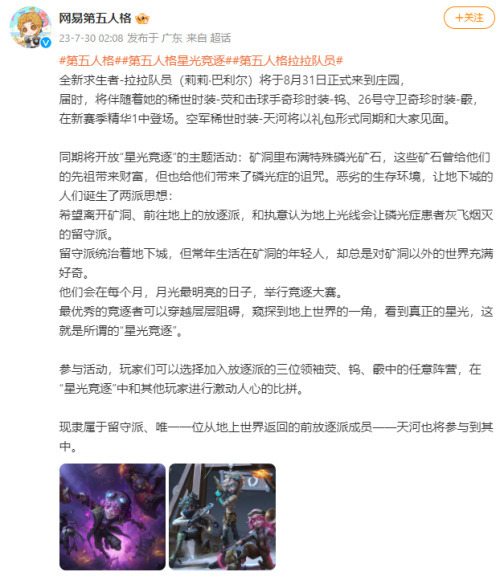

According to the short backstory given to Hunter Norton so far, it re-emphasizes his fear of the dark and being back in the “bottomless mine that he had always wanted to escape from”. So he stays in the light. This can tie to how in Lily’s essence, in her design notes and in her essence trailer, we see how being in the moonlight starts to cure/heal the “phosphorescence illness” from Lily aka her ore/mineral parts. If being in the light helps, that could relate to why Norton is avoiding the darkness, and especially the mine itself.
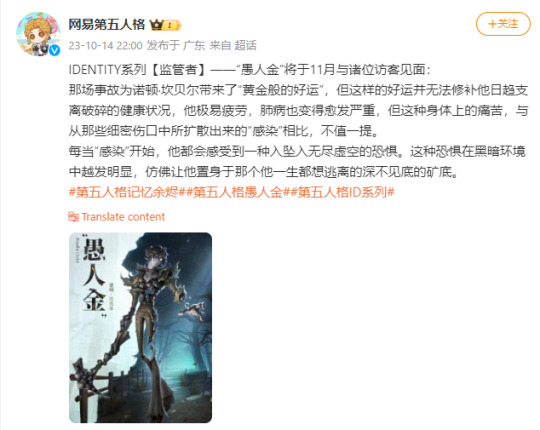
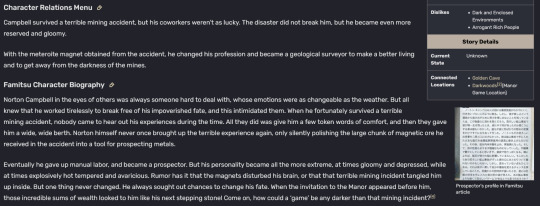
On Hunter Norton’s hip is what appears to be an Oil-Wick Cap Lamp or Tea Pot lamp. These were 1st used in Scotland around 1850, with a hook on the back and a spout where the fat and oil for fuel were pulled from and lit. Miners typically used the cheapest fuel they could find. A drip ring could be added to catch any oil falling from the wick. Compared to candles, the light was brighter, lasted longer, and was easier to carry, but the flame was smokier. The open flame could also ignite flammable gases in mines and causing explosions. The threat of explosions led to the invention of the safety lamp for use in potentially combustible mines and the invention of the carbide lamp which replaced the oil-wick lamps by the 1920s. (Main difference is Oil-wick lamps were hung from their hats while Hunter Norton has it on his hip hanging from a chain.)
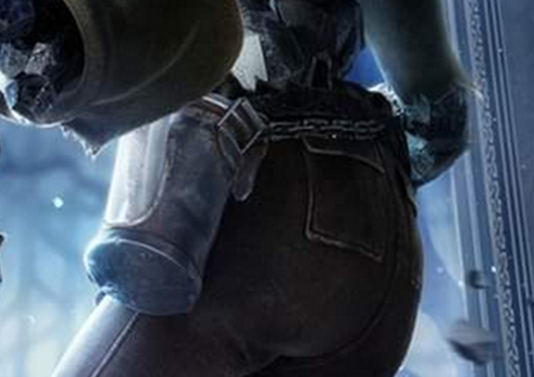
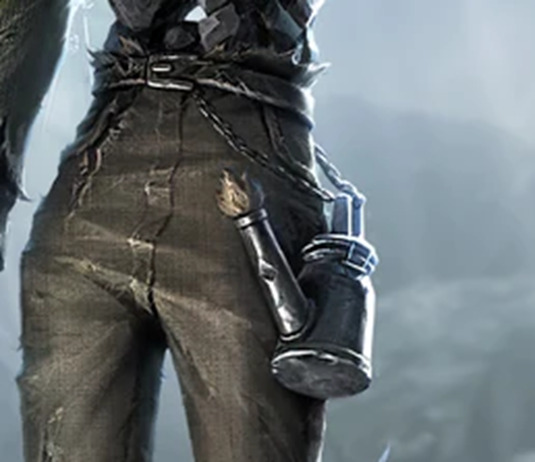
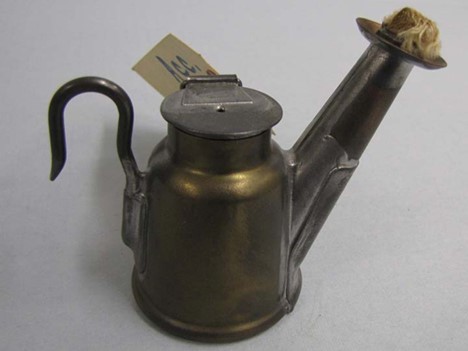
#idv#identity v#norton campbell#prospector#Fool's Gold#Hunter Norton#idv norton#identity v norton#idv prospector#identity v prospector#idv Fool's Gold#identity v Fool's Gold#idv fools gold#identity v fools gold#Fools Gold#idv hunter norton#identity v hunter norton#sirenjose analyses and theories
99 notes
·
View notes
Text
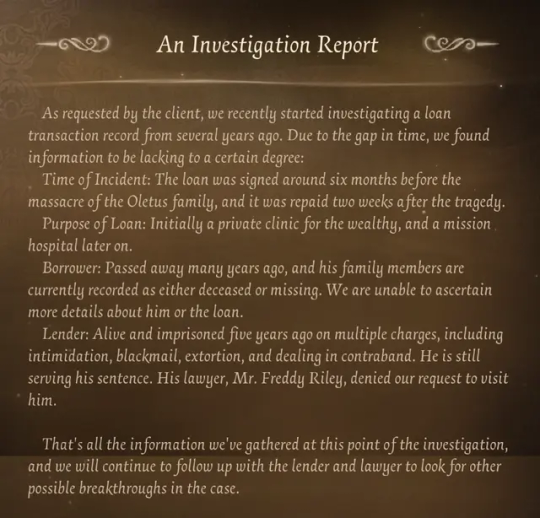
Orpheus' 2nd Character Day Letter
If the purpose of the loan had to do with a clinic and hospital, that implies the loan was likely due to someone being ill or injured. For the wealthy obviously implies who the borrower was.
Considering this is Orpheus' letter, and we know the DeRoss couple was "wealthy" (based on the original Oletus Manor backstory, comments Alice makes, Burke and Bonbon's deductions, and Orpheus' tale, especially with how the massacre to some extent had to do with greed), the DeRoss couple were likely the borrowers. That and it specifically has the context of the time of the "incident" based on the Oletus Family massacre. This matches with the Borrower (likely Dennis, especially as the line about the borrower uses the word "him") being deceased, and his family also being deceased (his wife) or missing (Alice).
If Dennis was the borrower, it seems likely he acquired the loan for someone in his family, meaning the purpose of the loan was 1 of them. In Time of Reunion, 1 of the lines Orpheus hears talks about the mother's (Dennis' wife and Alice's mother) condition worsening. Ergo, she was who the loan was for.
This lines up with a page from the artbook, which actually discusses Dennis' wife's affliction:
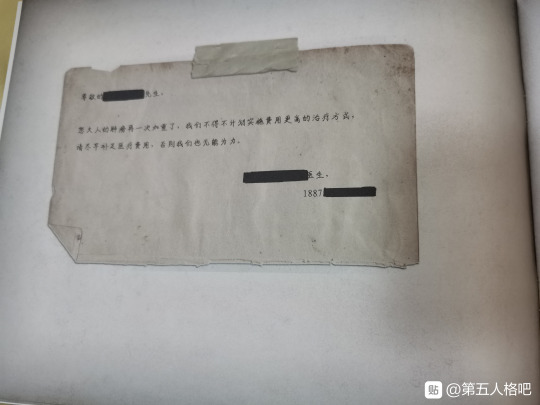
Dear ◼︎︎
Your wife's lung cancer is getting worse again and you need to implement more advanced treatment.
Unless you pay for her medical care as soon as possible, we cannot do anything for her.
◼︎︎ Doctor, 1887
Then there's the question of the lender. Based on the mention of "advanced treatment", it's likely the loan was quite large and thus the lender must've been similarly wealthy, especially if even someone of the DeRoss couple's wealth couldn't afford it. Of course, someone we know that is wealthy and has ties to the DeRoss couple, my first thought is the Barriere family.
First to mind is Count Barriere, who we know is very wealthy, is tied to shady happenings, had a signature on the same page as Dennis, and we know he gives out loans based on the IOU owned by someone with the signature "D" that he wants Lily to reclaim. It's not guaranteed to be him though, not to mention the IOU Lily is after is still to be paid and is tied to "Mediterranean Development" and a copy of Orfeo, while the loan in this letter was "repaid 2 weeks after the tragedy".
We know it can't be Lily's father, Reger, but Reger was said to only be the 2nd son. So it's possible maybe the 1st son gave out this loan. The only reference to a Barriere that isn't confirmed to be Count Barriere is from Freddy's 4th letter, which references a "Keogh & Barriere law office". Though it may feel a bit odd if the co-partner for the law office referenced here is the one that has been imprisoned for so long. It's possible the 1st son isn't related to this law office, but he still could have given the loan.
Though it'd also be curious if the 1st son was tied to this law office and the lender for this loan considering Freddy, a financial advisor, in that case would be connected via both his 4th letter and his mention in Orpheus' 2nd letter.
There's also how Freddy's background mentions a "failed lawsuit" in his past. If Freddy is his the lender's lawyer, I wonder if this could be the "failed lawsuit" from Freddy's past (especially if it happened at least 5 years ago). He should still be his lawyer even if Freddy lost the lawsuit and couldn't prevent his client from being imprisoned. And if his client were a Barriere, maybe that could tie at least somewhat to why after this failed lawsuit Freddy's life seemed to decline after, based on after that case Freddy was said to be "toiling away at a menial job with a pathetic wage". With someone as high up as the Barriere family, it's possible he could've suffered some sort of punishment or something for being unable to prevent him from being imprisoned.
This is just a bunch of my current thoughts, so who knows what's right.
I do find it curious the loan was paid 2 weeks after the tragedy. I wonder if either someone paid it off for Dennis, or if maybe the manor was seized and used to pay it off, and thus potentially how it could then be bought by Manus, and then later bought by Orpheus.
As for the loan being signed 6 months before the massacre, I do admit I wonder if it's possible it is connected somehow someway to why the massacre happened at all (which I still wonder if Barriere helped cause).
Though if Dennis was wealthy, was he just having trouble paying for his wife's treatment because it was a very expensive treatment, or I wonder if people stealing from his manor (based on Bonbon's deduction 4 that implies Orpheus's parents, maybe helped by Orpheus himself or not, were taking "valuable items" from the manor due to their greed) was causing Dennis enough trouble that he was forced to ask for a loan rather than be able to pay himself. If so, I wonder if that was on purpose to pressure Dennis (to what end, I don't know. Why was it important for all of this to happen if so?), but maybe I'm thinking too hard again.
(Doing this at all because I enjoyed having an actually interesting letter for once, compared to what we're getting for people's 5th character days, enough to talk again. Will see how I continue to feel. Still taking it easy)
#idv#identity v#orpheus#novelist#idv orpheus#idv novelist#identity v orpheus#identity v novelist#freddy riley#lawyer#idv freddy#idv lawyer#identity v freddy#identity v lawyer#sirenjose analyses and theories
39 notes
·
View notes
Text
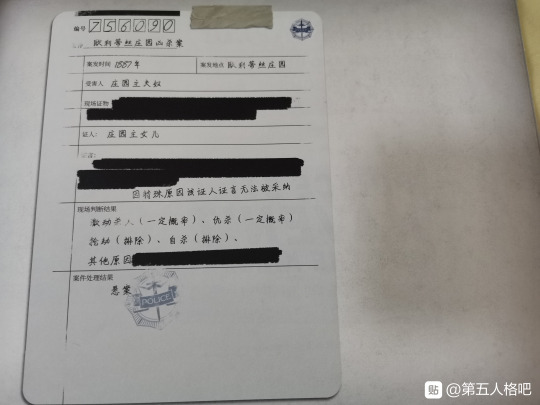
Norton's Birth Year and some facts about his age at the time of the DeRoss tragedy
Alice: age 6 when her parents die in the tragedy
Year of the tragedy: 1887, based on the Official Artbook
Alice is 21 in the final game, so the final game was in 1902.
Norton is 28 in the final game.
-> Norton was born in 1874 and age 12 on the day of the tragedy in 1887.
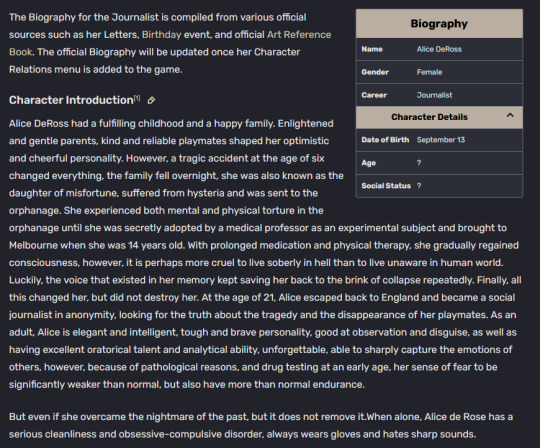
Alice's birthday: September 13.
If Alice is 6 during the tragedy, and the tragedy was in 1887, that tragedy had to have happened between September 13, 1887 and December 31, 1887.
Norton's birthday is March 19.
-> Thus why Norton we know was 12 at the time of the tragedy.
12 was the minimum age allowed for boys to work underground in coal mines (Metalliferous Mines Regulation Act, 1872). Legislation in 1860 set a requirement for a minimum level of formal education before children were permitted to work. It made it so 10 and 11 year old boys could only be employed in British collieries if they had earned an educational certificate or if they attended school at least 2 days a week for at least 3 hours per day. (Females were prohibited by an Act in 1842.)
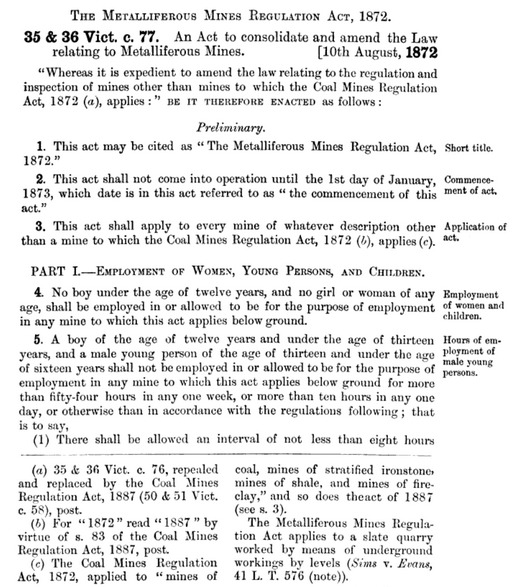
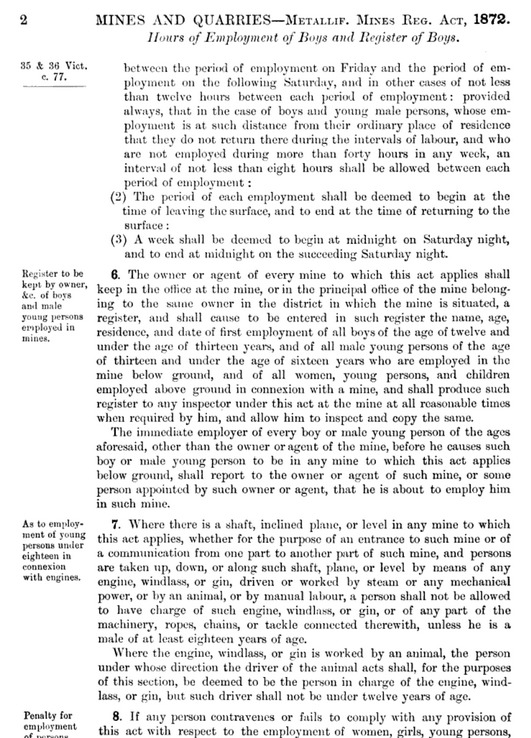
The Education Act of 1870, which applied to England and Wales, made attendance at school compulsory for children between the ages of 5 and 10. For Scotland, an Act was introduced in 1872 that made school compulsory for children between 5 and 13. There were exceptions to these 2 acts, such as for children engaged in apprenticeships or those being appropriately home schooled.
The 1872 Act also made it so boys between 12 and 16 couldn’t work more than 54 hours in 1 week or 10 hours in 1 day. It also required between 8 and 12 hours between periods of employment (defined as starting when they leave the surface and ending when they return to the surface).
It did have provisions for 10 year olds to labor part time where seams were especially thin. At the same time, surface work was regulated, a minimum age of 12 being required for both boys and girls for full-time employment (and 10 years for part-time work).
Norton says in his 2nd letter “Over the last 20 years, I lived like a rat in the gutter”. Based on what we know, he was likely restricted to work above ground until at least age 12, and even afterwards had restrictions on his hours and what he could do and such until at least age 16.

In which case, this comment, based on the context, may have just been referring to him growing up poor. It may imply his father died when he was 8, at which point life became very hard for him, especially as Norton’s mother is never referenced. As I discussed in a previous post, with how rare divorce was, Norton’s mother is more likely to be dead.

#idv#identity v#norton campbell#prospector#Fool's Gold#fools gold#idv norton#identity v norton#idv prospector#identity v prospector#idv fools gold#identity v fools gold#idv fool's gold#identity v fool's gold#sirenjose analyses and theories
108 notes
·
View notes
Text
Analysis of Ganji Gupta
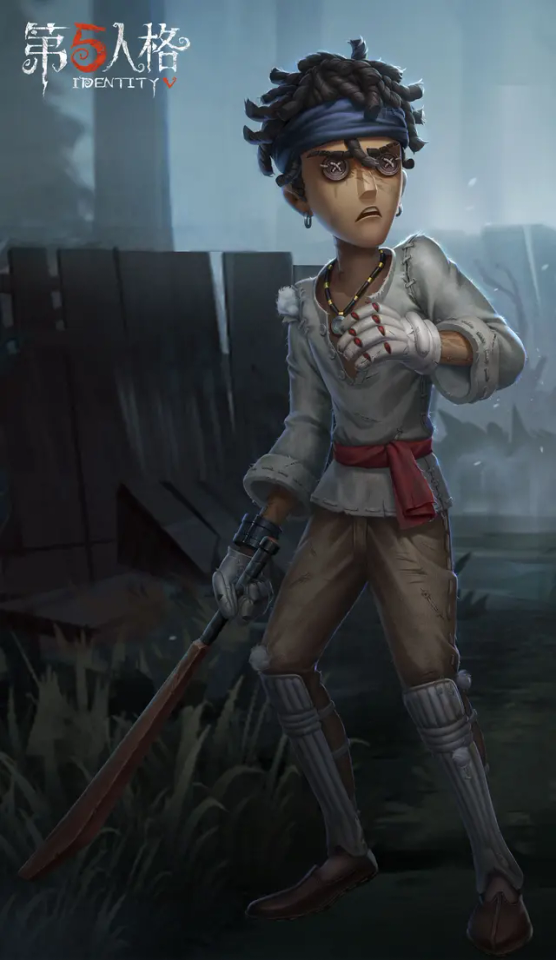
Ganji was born in India during a time when Britain still ruled over it.
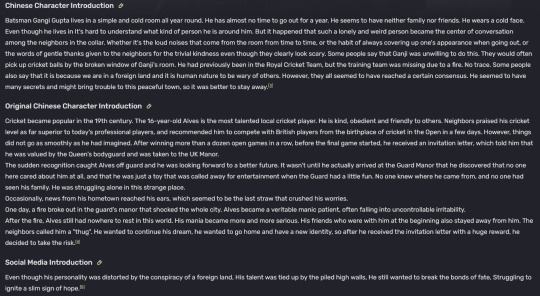
Britain came to India after a sea route connecting Europe to India was found, and Britain initially came due to the economic prospects of trade, but eventually this turned into the desire to acquire territory.
The British presence in India began with the establishment of the British East India Company (the British government having no authority over them at this time). Initially, the focus was trade and acquiring goods such as silk, cotton, spices, and more. Trading posts were established and British communities developed, but eventually they started to meddle in Indian politics and transformed from a trading company to a ruling one. It was at this point that the British attitude towards Indians degenerated (a sense of superiority vs inferiority formed, biased views regarding non-western cultures arose, British disdain increased, and so on). Racism, frustration from the British forcing their own way of doing things (including the English language) on them, policies benefiting the British, and so on contributed to the Indian Rebellion of 1857 (aka Revolt of 1857, First War of Independence, or Sepoy Mutiny).
As a result of this rebellion, the British East India Company was replaced by the British Raj, which was when the British Government took direct control from the East India Company, with Queen Victoria later proclaimed Empress of India. Britain continued to focus on profit and change beneficial to themselves, which led to subjugation and exploitation, and their views of Indians did not improve (still viewed themselves as superior, believed in stereotypes as well as believed Indians were in need of British guidance and governance to civilize them and bring them modernity).
This background is important for Ganji as it is clear this is what he experienced, especially due to Ganji’s 1st letter.
Ganji we know grew up with a talent for cricket, which was the “British national sport”.

His 2nd deduction implies he was a “prodigy”, with many people who knew him recommending him to participate in the regions “open tournament”. We know from Ganji’s trailer that he received “Love, Happiness, Hope and Pride” from playing cricket, showing how much he enjoyed the sport and how much it meant to him.

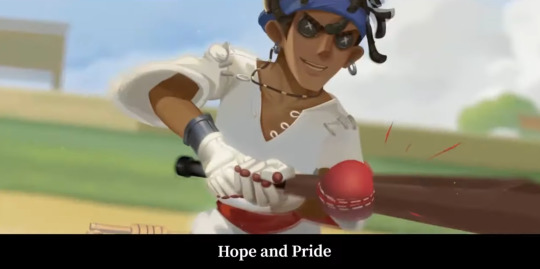
According to this same deduction, combined with Ganji’s backstory, we knew he was a “kind, obedient, and friendly” person, “mild-mannered” (aka gentle and not given to extremes of emotion, which is curious considering later on in Ganji’s story), quiet, and well-behaved. One of Ganji’s backstories states this event (where he was recommended to participate in the Open) took place when he was 16 years old.
During this competition, we know he was skilled enough to earn 12 consecutive wins. The next game after those 12 was a semi-final with the British Royal team. It does not say if Ganji won or lost that match, nor if he won the competition in general, but we do know he was skilled enough to receive an invitation from the Royal team to join them and an offer to help him train. As the deduction uses the word “exception” and applauds him for his performance, I’m assuming he did manage to at least defeat the British team and could’ve won the competition too, but it’s impossible to say for sure right now.


We do know that Ganji saw this invitation as a “good chance” and he “looked forward to a better future”. As a result, he left India with the British Royal team, where he stayed at the Queen’s Guard’s manor. Unfortunately for Ganji, it isn’t until he has arrived that he realizes the truth: “he discovered that no one here cared about him at all, and that he was just a toy that was called away for entertainment when the Guard had a little fun. No one knew where he came from, and no one had seen his family. He was struggling alone in this strange place”.
This was echoed in Ganji’s trailer, which says: “Yet when I was brought here I finally realized, These gentlemen simply needed a proper toy to play with. The funny thing is they were far from gentlemanly themselves. All they longed for were our submission and servitude”.

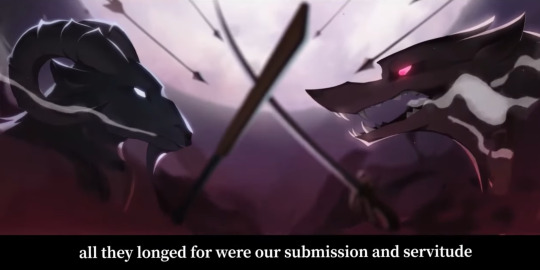
The terms “submission and servitude” tell us how Ganji was treated while in Britain at the Queen’s Guard’s manor. This is further emphasized by Ganji’s deduction 5, which states Ganji was only given 1 day to train, while 2 others (Oliver and Willie) were given 3 days to train. As that deduction says, despite how Ganji hoped for a better future from this opportunity, the “other sided” ended up only being a “mirage”.

Considering Ganji’s earlier invitation and how he is now being treated combined with only being given 1 training day, it seems the British didn’t want Ganji to be outstanding, which potentially could relate to the feelings of superiority discussed earlier. They didn’t want to feel inferior to someone like Ganji, and thus could further explain why they didn’t give him much training time. In the trailer, we see him picking up balls, and if this was all he was allowed to do, that’d further hurt his ability to train and improve. Lastly, Ganji was only allowed to train on Sundays, and back then, this was seen in Britain as a day of rest, when people didn’t work. This could’ve included cricket as well (there are instances of people being prosecuted for playing cricket on Sunday), which shows how much the Royal team tried to hinder Ganji’s ability to train, meaning he likely wasn’t being trained very professionally.
(If the room we see Ganji in before the fire in his trailer is the one he was given upon arriving at the manor, the state of the room could further show how the Royal Team felt about Ganji. The only identifiable items in the room are the cricket ball, as cricket is what he enjoys, and a blurry picture that we can see Ganji in, which could potentially have been of his home and thus ties to his desire to return to it.)

This fits with Ganji’s design notes which say “his social status and the agenda of politicians did not allow him to have obvious extraordinary talent”. It is because of this the design notes say Ganji’s gentle personality was forced to change into “a personality that takes strong measures to fight against fate”. (It is also right after this that it mentions Ganji being “manic”.)
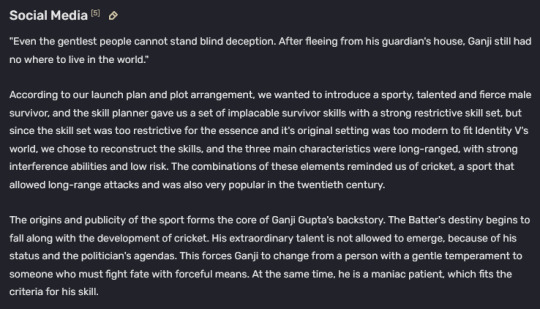
Going to Ganji’s 1st letter, it further reveals how people thought and felt about Ganji and others like him. The part where the author says they need to “take the lead so that the rest of us may get the chance to educate the foolish” fits with how we earlier discussed the British felt they had to govern and civilize the people of India for their own good. This is emphasized with how later the letter says “If it weren't for your insight, he would have spent his life in the mud without ever being touched by the empire's light” and Ganji getting “the chance to lead a civilized life”.
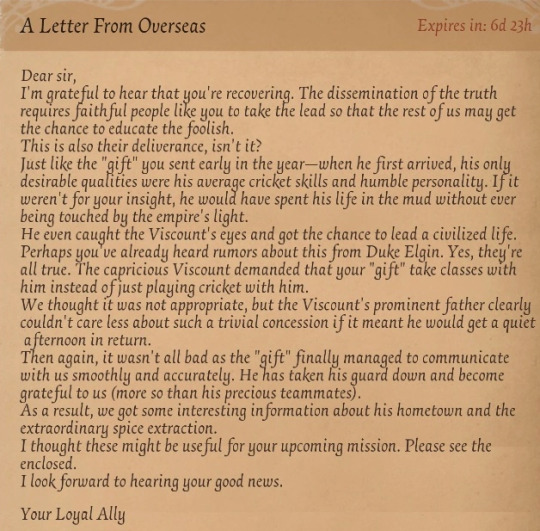
This letter describes Ganji as a “gift” with his “only desirable qualities” being his “average cricket skills and humble personality”. Their sense of superiority is clear hear considering they call Ganji’s skills “average”, yet we know he was talented considering he at least managed to receive 12 consecutive wins in the competition, while the comment about Ganji being “humble” could tie in to how Ganji in his trailer says they just wanted “our submission and servitude”.
Despite how badly Ganji was treated, the one exception was the son of the owner of the Queen’s Guard’s manor. We know he was friendly to Ganji based on Ganji’s deduction 6, which is title “relieved” and shows that the kid thought Ganji was “brilliant” and asked Ganji to play with him. It is possible Ganji is the one who feels “relieved”, and that could be due to actually finding someone friendly in this place. In the JP and CN versions, it potentially has the kid use the term “big brother” for Ganji, so altogether, the kid was likely being honest about his feeling regarding Ganji’s skills and honestly just wanting a real playmate (rather than a toy like the others saw Ganji as).

In this same deduction, it mentions a “well-made board” that has Ganji’s name carved in it. As this is the deduction that involves the son of the manor owner of the Queen’s Guard, it is possible this board was a gift from that kid, and that board may have actually been a bat for cricket.
Going back to Ganji’s 1st letter, it mentions a “Duke Elgin” and a “Viscount”. Based on the mention of “the Viscount’s prominent father” and how this Viscount “demanded” Ganji to “take classes with him instead of just playing cricket with him”, it’s possible the “Viscount” could be the son of the owner of the Queen’s Guard’s manor. We know this boy asked Ganji to play cricket with him due to how cool and talented he thought Ganji was, so it could also fit he might also ask Ganji to take classes and spend other time with him. I’d like to imagine Ganji enjoyed spending time with the boy, as taking classes and playing cricket with him was likely much better than being treated as a toy by the others or languishing along in his poor room.
Ganji continues to play cricket, despite his anger, though he does form a relationship with this boy. If Ganji was 16 during the Open when he was invited to join the Royal Team, and Ganji is at least 21 in game (as he can drink Demi’s dovlin), he was likely subjected to the mistreatment of the Royal Team and owner of the Queen’s Guard’s manor for a fair number of years at least. As we know, he was never able to meet his family while he was at that manor and he was forced to “struggle alone in this strange place”. The “last straw” came one day when he received news “bad news” about his hometown, with his deduction 7 saying he’d received a letter saying “Go home and save them!”

It is soon after this that a fire breaks out and burns down the manor of the Queen’s Guard. The only survivor was the owner’s son and Ganji.
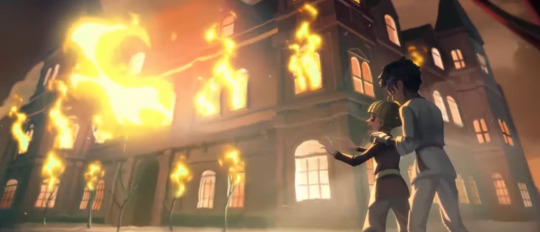
This is also the same time that in his backstory trailer it says “Stop being nice to everyone. I need a new identity. I want to go home. Perhaps that is the only place where there's still hope”.

This matches with Ganji’s last deduction, which is “a letter to home” that he wrote to his mother, saying that “everything’s fine with me. I’m coming home soon”.
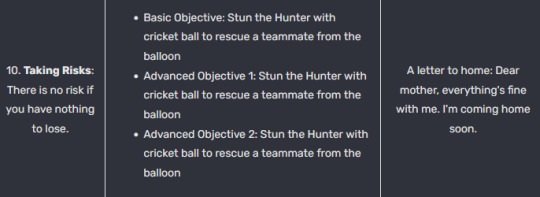
Right after the fire starts in one of his backstories, it says Ganji became a “manic patient, often falling into uncontrollable irritability”, so it seems the fire and around this time is when he is first said to be manic. His deduction 9 has a diagnosis saying “Mania, easily irritated. Avoid looking at fire. Suggest locking all windows and doors and staying at home alone”. It is because of his worsening mania that is says people stayed away from him and called him a “thug”, but Ganji only cared about going home.

Once again returning to Ganji’s 1st letter, the end of it talks about getting info on Ganji’s “hometown and the extraordinary spice extraction”. The mention of spices fits our earlier discussion on Britain’s interest in India in part for its spices. This info about Ganji’s home and spice extraction is apparently helpful to whoever this “sir” is and an “upcoming mission” he will be going on. This same “sir” is apparently someone responsible for the idea to bring Ganji to England (though for now I’m thinking he isn’t the Queen’s Guard’s manor owner, who I think is the Viscount’s father).
Considering the talk about Ganji’s hometown and the obvious interest in its “spice extraction”, this could mean this “sir” is someone behind whatever “bad news” came from Ganji’s hometown, and likely the “bad news” and “upcoming mission” had to do with their clear interest in its spices. And if they wanted info on Ganji’s hometown, that could mean one of the few reasons they invited Ganji over was for that info so they could exploit his hometown for the “spice extraction”.
(One side note about Ganji’s 1st letter, but in the CN and JP versions, it says this “Sir” is someone who is recovering their health in “Delhi”, which further shows it’s not the owner of the Queen’s Guard’s manor, who we know was in Britain. It’s possible, if this is someone capable of going on missions and is mentioned regarding “we need… people like you to take the lead” that this “sir” is someone higher up in the government regarding rule of India, who could order a mission to Ganji’s home for it’s “spice extraction”).
Next is Ganji’s 2nd letter, which unlike his 1st (which happens before the fire) his 2nd happens after the fire. We hear he tried to board a freighter. Likely he was attempting to stowaway to return home, but he was caught and taken away by someone working for Duke Elgin. Ganji was placed in a detention center, where he was examined. They mention a “strange scar on his forehead”, which potentially came from the fire that burned down the Queen’s Guard’s manor. We do see Ganji with the owner’s son while the fire burns the manor, so if he had to go in to rescue him, that could have been when.
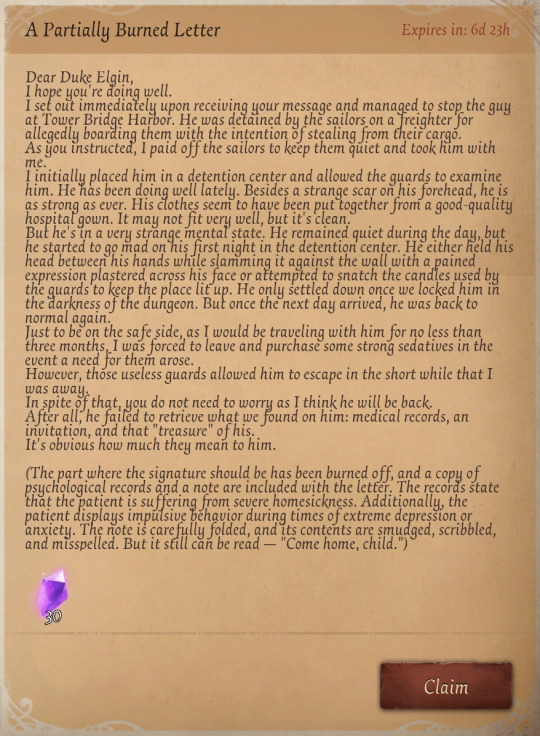
Considering how they say Ganji, besides his scar, seems “as strong as ever” to me kind of feels like they’re still talking about him like an object or one of their possessions.
After this, the letter mentions how Ganji would be “quiet during the day” but would go “mad” at night, with him “either holding his head between his hands while slamming it against the wall with a pained expression plastered across his face or attempted to snatch the candles used by the guards to keep the place lit up. He only settled down once we locked him in the darkness of the dungeon. But once the next day arrived, he was back to normal again”. It was due to this behavior that the author states he went to purchase “strong sedatives” (to be used on Ganji if he went out of control). During this time while the author was away, Ganji was able to escape despite the guards around him. Despite this, the author believes Ganji will return as they still had several of his possessions, including “medical records, an invitation, and that "treasure" of his.
It says the part with the signature had been “burned off”. If Ganji was messing with candle fire while in the detention center, it’s possible he did something similar to this letter if he got ahold of it (unless it’s nothing important).
The mentioned “treasure” is likely the note from home that reads “Come home, child”. Considering it says “child”, there’s a chance this could’ve been written by his mother. We know Ganji’s written to her himself before, so him receiving correspondence from her would make sense.
Another treasure we know Ganji owns is his accessory Cozy Fleece, which is a sheep toy “given to Ganji when he was young” and said to be “one of the several treasures in his luggage”. This was likely another item given to Ganji by his mother, when he was still home, and thus why he treasures it. Another potential treasure could be Ganji’s bansuri accessory, which has the description that mentions its music helps to recall his hometown.
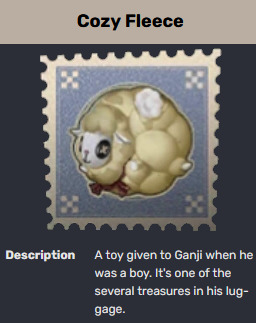
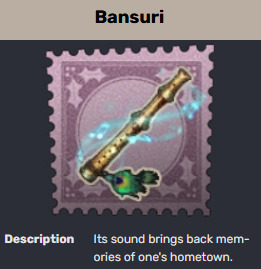
As for the medical records, it says that the patient is suffering “severe homesickness” and displays “impulsive behavior during times of extreme depression or anxiety”. This means that Ganji’s “mania” is caused by his “severe homesickness” in moments when he’s suffering from “extreme depression or anxiety”. That could mean, with Ganji already being homesick for years before the day the fire started, Ganji’s “last straw” when he received bad news about his hometown now makes sense why the fire likely started then. That “bad news” triggered his anxiety and severe homesickness, depressed him when he realized he was stuck at this manor with no quick way home, before then making him impulsive and “manic” in his desire to go home as soon as possible. Whether or not it was on purpose or an accident, it is possible one of his “impulses” resulted in the fire starting, or a confrontation that triggered his irritation causes it to accidentally begin. Maybe a bit of sanity returned to him afterwards, and that could be when he rescued the boy as we see him with the boy during the fire in Ganji’s trailer. But for now, information is scant on the specifics of this event.
Potentially after escaping detainment could be when we see him living by himself like in his other backstories. It’s possible he was in hiding from those that had captured him. We don’t know for sure whether he returned to them for his treasure (it’s possible with how important his note from his mom likely was). We know from Ganji’s backstory that it says he “lived in a cold room with little furniture for years” and “seldom stepped outside during the year”. He had no friends, always looked solemn, and people found it “difficult to get to know him”. Ganji is described as “peculiar and lonely”, and someone his neighbors “loved to gossip about”.
His backstory mentions “random loud noises coming from his room”, which could tie to the behavior he displayed at night in the detention center, when he’d hit his head against a wall.
Regarding Ganji hiding in his room all the time, this connects back to his deduction 9, the diagnosis that suggested “locking all windows and doors and staying at home alone”.
The part about “avoid looking at fire” implies, whether or not he did it and whether it was on purpose or accident, it implies he’d been deeply affected by the fire that burned down the manor. Maybe because of all the feelings (and irritation) he had from how long he spent there, being mistreated and never being allowed to train. Maybe because of the boy he’d formed a relationship too and how this fire took away his home and family, just like Ganji was without his home and family. Maybe any conflict he had if he was somewhat responsible, whether accidentally or on purpose, as his trailer does mention wanting those “gentlemen to repent for their sins” but also because this was a place he’d had such high hopes for regarding his future and now it’s turning to ashes, as well as was a place he’d suffered alone, away from his family, for a long time, but more conflict because Ganji was deep down still a “kind” person (and maybe regretted not saving more people, or regretted if he had a fit of anger and its consequences that day that causes all these events). Just another boy, like the son of the owner of the Queen’s Guard crying at the sight of his home on fire, that was crying out for his family and home as it was threatened or attacked but Ganji unable to do anything about it.
The backstory continues by saying he kept his appearance “hidden” whenever he went out, which could relate to if he was in hiding from the people who’ve been trying to capture him in his letters, or to the mistreatment he potentially receives if people knew where he was from, or to hide the scars on his face from people if he knew how they’d react upon seeing it (as they did describe his face as “horrifying”). It also fits with how his trailer said he needed a “new identity”.
Despite how they treated him, Ganji was said to give “softly spoken words of appreciation to the neighbors’ trivial kindness”, which seems to connect to Ganji’s original personality (as he was described as kind, friendly, and mild-mannered before he came to Britain).
Others debated the reason for Ganji’s behavior, suggesting “regret” (tied to the fire that ended his training with the Royal Team, as other people wouldn’t know the full truth about his feelings towards the Royal Team) or “cautiousness” (from living in a foreign country). Unfortunately for Ganji, everyone decided that Ganji had “a lot of secrets” and “might bring trouble to the town and decided to stay away from him”.
The last thing we hear about Ganji is he still dreamt of returning home, and eventually received an invitation from the manor, offering a “huge reward”, enough for Ganji to use to go home, and he “decided to take the risk”.
Side note regarding Duke Elgin.
I couldn’t find any “Duke” Elgin, but I did find an “Earl” of Elgin. The 9th Earl of Elgin, Victor Bruce, was the Viceroy of India.
I don’t think this is the exact same “Duke Elgin” but it could be a basis for the character (for Netease when designing this).
These were individuals appointed by the British monarch. They represented the British government in India and exercised authority over British India on behalf of the British crown. Victor Bruce served as Viceroy during 1894-1899m which was a particularly troubled period in Indi’s history, and his tenure was not seen as a successful one. During his administration, there was economic and social unrest, a famine, bubonic plague, and the Tirah campaign (Afridi Frontier Rising). This campaign took place in Northwest India and involved the British seeking to restore control over the area after an uprising occurred (with 1 of the challenges they faced being the mountainous terrain).
I don’t think this is exactly where Ganji is from, but this event, as well as all the other issues occurring at the time, could relate to or be a sort of basis (to Netease) for whatever did actually happen to Ganji’s hometown.
Apparently the “bansuri” is a flute connected to north Indian music (with the venu being connected to the south), which could mean (with how the Tirah Campaign happened in the Northwest) Ganji could be from somewhere in the North part of India.
#idv#identity v#ganji gupta#batter#idv ganji#identity v ganji#idv batter#identity v batter#sirenjose analyses and theories
54 notes
·
View notes
Text

Question: Why do Hunter Norton and Ronald cover the side without the scar?
(Since someone was asking for it, I'm reposting this here. Hopefully this is what they were looking for)
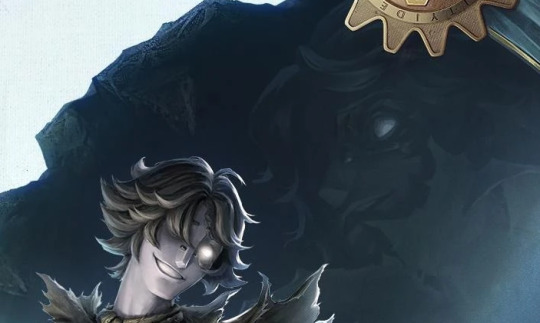


Thoughts:
1) It's what the world sees when they look at him. The ugly scars. Everyone gave him a "wide berth" after the accident based on the Famitsu article, which would fit with this idea.
2) For Ronald (and for Norton), he refuses to give up on his goals, despite what happened, despite how people see him. He continues on without hiding it.
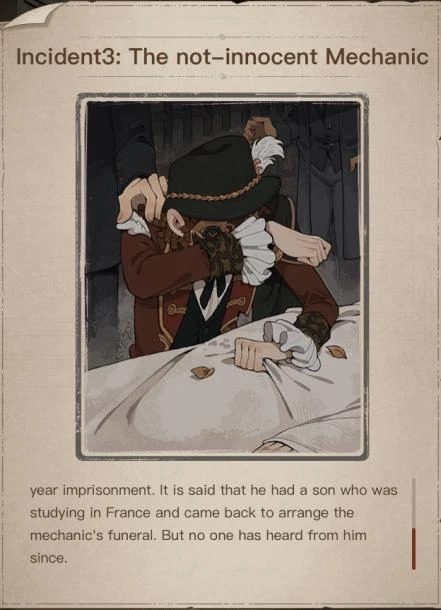
3) He wants left alone. If the scars scare people away, that's fine by him. He prefers to avoid socialization anyways.

#idv#identity v#norton campbell#prospector#idv norton#identity v norton#idv prospector#identity v prospector#sirenjose analyses and theories
66 notes
·
View notes
Text

Teahouse Tales Analysis
Translations of the backstory (by Pascal): https://docs.google.com/document/d/1L_Lk5zmhuSHJMzS0ERV0jVHb-nWXgddwZJjT8oyJPmM/edit#
Translation of the event (by Pascal): https://docs.google.com/document/d/131Uuz69qVe6wJEOqnAx8LSWSdZyGUutg7kTd1zmNtUs/edit#
Teahouse Tales trailer: https://www.youtube.com/watch?v=a-_qrWTpzbs
Teahouse Tales was the 2nd anniversary event for the Chinese version of the game. The setting for this event is a teahouse run by the owner Lady Thirteen (Michiko). Besides going there to drink tea, secretly the main customers of this teahouse are those who have “committed” something. They come to this teahouse “without direction in life”, “at the end of their rope”, seeking “salvation” and “financial aid”. Lady Thirteen hears out what they have to say, and if she believes them, she may decide to help them. The reason they go to Lady Thirteen is because she controls the town’s “information lifeline” and there’s nothing “she doesn’t know” or “a person she can’t protect”.
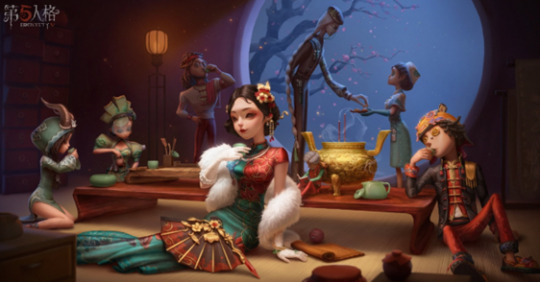
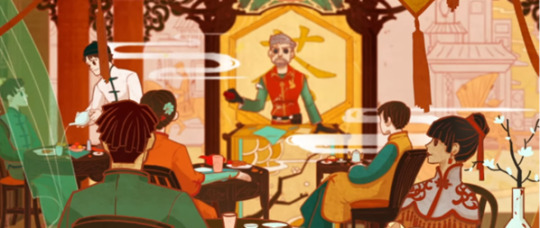
To support her she has her assistants Flying Guillotine (Wu Chang) and Sparrow (Norton). Flying Guillotine is a former famed assassin who now serves as her head waiter. He takes orders at the teahouse but also is in charge of “some of the boss’ more fearsome transactions” (meaning he likely kills for her when she needs it).
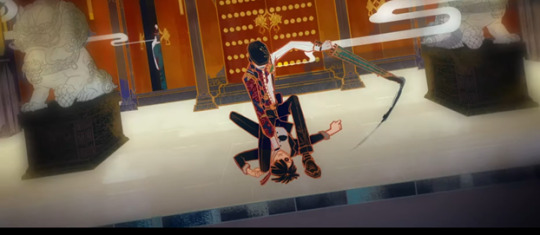
Sparrow is her second waiter. His role is to gather information and act as a “silver tongue” (based on the trailer), as he is “a master in the slick and sly, skilled in observation and indirect questioning, digging out and analyzing information amidst merrymaking”.

People go there to drink tea, but the teahouse also secretly gives aid to those who’ve committed crimes and come asking for help from Lady Thirteen. Lady Thirteen knows everything, as she controls the town’s information lifeline. Regarding her helpers, Flying Guillotine helps Lady Thirteen maintain order and eliminate potential problems, while Sparrow is in charge of gathering information. The player comes to the teahouse because they need her help with the photo album they have (of all their memories of the Manor). In return for helping with the photo album, Lady Thirteen asks the player to do a job for her: check gift boxes for poisonous gifts and help identify a traitor planning a “rebellion” against her.
One note about this event is that, depending on the choices you make during the event (based on the answers you give to questions you’re asked), you can get 1 of 2 endings: one where you side with Flying Guillotine, and the other where you side with Lady Thirteen.
After reading through the events and both endings several times, I believe there is for the most part only 1 timeline, with the events being given to us out of order and scattered about. The 2 endings aren’t mutually exclusive (Lady Thirteen’s ending occurs some time before Flying Guillotine’s ending). Each little bit of the event we get helps to fill a hole in the story we read in “Bone-Eating Gift”.
Bone-Eating Gift begins with Lady Thirteen having the player help her out by checking for poisonous gifts in return for assisting with their photo album. On Day 2, the player asks Lady Thirteen why she picked them to help her. She explains it’s because they are a “no-strings attached” outsider. They’re fresh, not familiar with anyone or anything at the teahouse, unbiased (at least for now), and only care about getting the photo album, thus making them the most suitable person to find the traitor for her. It also may be possible she has the player checking giftboxes as a way of testing the reaction of others at the teahouse (to further help her discover who the traitor is). The very next day, as a result of their talk with Lady Thirteen, it’s mentioned that the people at the Teahouse look at the player differently, while Sparrow and Jade Dew (Emily) notably keeping their distance from the player.
Day 4 has the player mention to Lady Thirteen that she should pay attention to Sparrow, because he’s been “acting odd” recently. This question makes Lady Thirteen unhappy, as she gives the player a “distasteful” look, before stating “He has remained by my side for a long time; He will not betray me”. The day after, the player is talking to Flying Guillotine who warns the player about Lady Thirteen and about how they should be careful about trusting her, before pointing out a window “at the child kneeling in the cold, wet snow”.
On Day 6, it’s mentioned today is Lady Thirteen’s birthday, and Sparrow thinks it’s a good day for lighting fireworks. The player asks if he’ll wish Lady Thirteen a happy birthday, but he says “No need, she just needs to know I’m here”.
The final day of Bone-Eating Gift brings up the fact Lady Thirteen is investigating Silver Steed (Freddy). She also gives the player their photo album before telling them “you and I both have what we want; and with this, you have my thanks”.
In the ending where you side with Flying Guillotine, we learn from Jade Dew about Flying Guillotine’s past, and why he wants revenge on Lady Thirteen. “The noble son of aristocrats studying abroad, who suffered until his family was broken and people had died. And every last part of it was because of Lady Thirteen; because of her ‘trade’”. Later, with the help of the player (they don’t really seem to directly help out. They just seem to support Flying Guillotine and not help Lady Thirteen) and Jade Dew, who gives Flying Guillotine a gun, Flying Guillotine kills Lady Thirteen.
In the ending where you side with Lady Thirteen, it starts with Bohea (Mike) asking Sparrow about where to put some goods, though they freeze when the player enters the room. Sparrow tells the player not to worry (about what he was doing), but when the player asks if they were doing some kind of business, he smiles and “put up a finger and shushed: ‘You must keep this private’”. After this (at this time, it’s said that the player is watching fireworks), it’s said that the player gets Sparrow in trouble: “I knew of business, but not how to do it, and I got discovered; Sparrow was punished for it”. The player feels guilty for getting him punished, but Sparrow tells them not to feel bad, “Lady Thirteen is my biggest benefactor. This job really is my responsibility, too” and says just to stand by their side next time.
Later, Sparrow tells the player not to sleep in “because of unnecessary questions” before saying they should go deliver refreshments to Lady Thirteen. Right after, he says “I believe she might be in danger” (the “Drops of water leaking from the roof ran down his neck” might actually be sweat, potentially to show he’s nervous). With Lady Thirteen, we find her with Silver Steed (Freddy), who’s apparently been beaten and dealt with harshly. Sparrow at this time is described as indifferent to him and what’s going on. Lady Thirteen says she’s trusted Silver Steed, but apparently he’s “gone and palmed off” Lady Thirteen’s goods, which is the reason for his current miserable state. She takes a stack of deeds from Sparrow, before saying to Silver Steed, “These are all your worldly possessions. Oh, not only that, but I just remembered. Your wife is newly pregnant, isn’t she?”. This apparently breaks Silver Steed and makes him freak out. He says he’ll talk, but before he finishes speaking, he’s shot and killed.
Now that I’ve summarized all of that, let me talk about what I think happened.
I’ll start with the beginning of Lady Thirteen’s ending, where the player finds Sparrow and Bohea talking about goods of some sort that Sparrows says is a “private” matter. Sparrow’s actions and behavior in this scene, especially since he doesn’t explain himself and he’s already been keeping his distance from the player, should be the reason why the player brings up to Lady Thirteen that Sparrow is acting “odd” and that she should keep an eye on him. The reason why they tell Lady Thirteen to be wary of him stems from Lady Thirteen assigning the player to help her identify the “traitor” at the teahouse.
Regarding the goods that Sparrow and Bohea had been handling, I believe these goods were for Lady Thirteen’s birthday. The reason why it was “private” is likely because he was trying to plan a party for her without her knowing. That’s why he didn’t want to tell the player what he was doing. It also fits considering soon after these events we hear about Lady Thirteen’s birthday. Things Unfortunately, things don’t go well for Sparrow and his plan after the player tells Lady Thirteen that Sparrow is suspicious, as this leads to him being “punished”.
Remember that one day mentioned a child kneeling out in the snow?
That was Sparrow.
Poor Sparrow is betrayed by the player and punished by Lady Thirteen all because he was trying to plan a surprise birthday party for Lady Thirteen.
This is likely why he tells the player he isn’t going to wish Lady Thirteen a happy birthday, and why her simply knowing he is here is good enough. He had just been punished by Lady Thirteen due to being suspected of being the traitor because of the player’s comments about him. We know Sparrow isn’t the traitor as he’s described as being completely loyal to Lady Thirteen. Lady Thirteen reflects these same feelings about Sparrow when she talks about him. Even though Lady Thirteen knows he would never betray her and that he isn’t the traitor, she is forced to punish him anyways to keep up appearances for the real traitor, to seem unbiased and on guard. Sparrow, because he is so loyal, accepts this and appears unbothered, with his only desire to help her out however he can. If Sparrow were to wish her happy birthday right after his punishment, it would ruin the image she’s trying to display to everyone and hinder her attempts to find the real traitor.
From her “distasteful” expression we know she was just as unhappy about having to punish him, but also aware that she now didn’t have a choice.
This scene explains the part when it says the player was “discovered” (aka they made a mistake) and Sparrow was punished. The mistake was the player suggesting that Sparrow was the traitor because they thought Sparrow was suspicious from whatever he was doing with the goods. The punishment was where we see Sparrow (the “child”) kneeling out in the cold ice and snow. Bohea was likely helping Sparrow out because he is the kind of person who wants to make people “smile” and “a rowdy crowd always makes him forget his fears”. Mike is a happy person who likes having fun, so it’s not surprising he'd be willing to help Sparrow plan a birthday party.
Switching now to Flying Guillotine’s ending, the beginning of this ending, where Flying Guillotine asks for the player’s help to get his revenge, occurs before Lady Thirteen’s birthday. One part I want to discuss is when Flying Guillotine says “Silver Steed has been discovered”. This comes after Lady Thirteen finishes her “speech” at her birthday celebration (and after Jade Dew gives Flying Guillotine a gun). Silver Steed being “discovered” should refer to the scene during lady Thirteen’s ending, where she kills Silver Steed for betraying her. This may refer to Silver Steed’s body being discovered from the Lady Thirteen ending, when he is killed for betraying her.
Silver Steed was also mentioned at the end of “Bone-eating Gift” on Day 7, which is the same scene Lady Thirteen gives the player the photo album and says “you and I both have what we want”. If Lady Thirteen has what she wants, this should refer to her goal of discovering the traitor, and relate to the “business” she is said to have with Silver Steed that day. Therefore, this implies that Bone-Eating Gift Day 7 happens before Lady Thirteen’s ending, after which is Flying Guillotine’s ending. This also implies the player didn’t leave immediately after getting the photo album, potentially staying at least long enough for the Lady Thirteen’s birthday.
So Silver Steed is killed before Lady Thirteen’s speech and before Flying Guillotine kills Lady Thirteen. If these 2 scenes happen near in time to each other, this could also mean that when Sparrow says he thinks Lady Thirteen is in “danger”, he’s sensing Flying Guillotine is getting reading to carry out his revenge and kill Lady Thirteen. This could also mean those “fireworks” were for Lady Thirteen’s party, and the “refreshments” he was brining to her were also from the party.
If Sparrow was at least in the previous scene when Silver Steed is killed, that means he is still alive and somewhere at the party. But the fact that we don’t hear about him at all afterwards, or anywhere in Flying Guillotine’s ending. I don’t think Flying Guillotine would’ve killed Sparrow. His only target was Lady Thirteen, the one he deemed guilty of killing his family, so he could fulfill his revenge. I don’t think he would’ve done anything to Sparrow once he accomplished what he wanted to do. But from there, we don’t really know what happens to Sparrow after Lady Thirteen is killed.
It's also possible, based on Silver Steed’s description (“What can compare? The gold clutched in your hand; is there anything more valuable?”) plus Freddy’s background that Silver Steed may have been involved if not mostly responsible for whatever led to Flying Guillotine’s family dying. It’s mentioned that Lady Thirteen’s “trade” is what caused it to happen. And if you compare this and the outcome to Freddy’s background, where he tricks Leo to buy a debt-ridden factory so he could take Martha from him and eliminate Leo (not to mention Leo and Martha both die, while Emma is orphaned), it fits really well with what happens to Lady Thirteen. Leo would be like Flying Guillotine’s family, regarding them getting a bad trade and getting killed as a result, with Flying Guillotine being similar to Emma since he, like Emma, is all alone now (Sparrow is similarly left all alone like Emma after Lady Thirteen is killed). Silver Steed being taken out by Lady Thirteen could relate to Freddy being taken out by Leo in the diaries.
From various bits during the event, I think Lady Thirteen may have known about Flying Guillotine and his desire to kill her for revenge. She likely knew why as well, which may have been part of the reason she had Silver Steed killed. She should’ve known about the “trade” that got his family killed, and if she finally learned that Silver Steed was the “traitor” that got them murdered, she likely wanted to eliminate him as a way to try to get revenge for Flying Guillotine’s family. Lady Thirteen is also continuously mentioned to know everything. Therefore, there’s a chance she knew Flying Guillotine was coming to kill her. She may have even let him do it. Maybe it was another way to make it up to him (help him end his suffering over his family’s death by letting him carry out his revenge).
During the “Sixth Tale”, it mentions Lady Thirteen has a photograph of everyone from the teahouse. The idea of a “family” is important to her. “On Lady Thirteen’s face hung a smile. ‘Not a single victory happens without relying on those by your side’”. Based on this, it’s possible that Lady Thirteen cared about Flying Guillotine as well, even though she likely knew he wanted her dead, and maybe that was part of the reason why she may have let him kill her (it depends on how involved she really was in his family’s death, and thus maybe she wanted to make up for her mistake).
To Lady Thirteen, the real “traitor” was likely Silver Steed, and she got what she wanted by killing him, but she likely also knew Flying Guillotine was the one who wanted to murder her for revenge. If she knew her death was coming, maybe she tried to send Sparrow away. Unfortunately, it’s probably more likely that Sparrow was around when she died, especially with how loyal he was to her and how much he cared about her. He may have even ended up having to watch his adopted mother get murdered right before his eyes.
I’m going to talk about Lady Thirteen a little bit.
In the backstory for Teahouse tales, it’s mentioned this teahouse is located in a Chinatown in Europe. This goes with Lady Thirteen’s skin description which describes her as a “foreign beauty”, referencing how Lady Thirteen isn’t from Europe. Her design notes also specifically refer to her as a “Far Eastern beauty”. This matches with her backstory, as we know she’s from Japan. Specifically, from her 1st deduction, her hometown was likely Eversleeping Town.
Michiko’s Deduction 1
Hometown: This is the last stop for our ancestors and the starting point for our journey.
A diary: Before entering, I called it Forever Sleep Town. Those moving objects really catch your eye on in those quiet, sleepy streets.
Sometime after this, 1 of her backstories from her release references she became the “best dancer in Yoshiwara”. Based on deduction 3 (and her backstory), we know she meets Miles at a banquet, after which they get married and he takes her back to his hometown. Considering Mr. Donnelly is at Lakeside, and Lakeside is near the manor, this likely confirms Miles’ hometown was in England. This fits with how the teahouse was stated to be in Europe and how Lady Thirteen is referred to as a foreigner.
Going back to the design notes for Lady Thirteen, it specifies that the purpose for her teahouse is for her own survival as well as to “protect those like her, her compatriots staying abroad, defenseless, while also collecting valuable information to exchange”. Lady Thirteen was far from home, all on her own, without any friends or support. She initially created this teahouse as a way to ensure she could make ends meet and ensure she could survive. But she began meeting others like her, who were potentially people also from the far east, and she sympathized with them due to her own circumstances. That’s when she decided to utilize the teahouse as a method to gather information, which she could use to help those that came to her for aid (meaning she likely used the info both for the sake of knowledge to help those wanting salvation, but also to improve her own finances which she could then give to those asking for financial help).
Due to being on her own in a foreign land from the far east, she had to become vicious to endure the foreign environment. This fits with her skin description, which talks about “the only way” to keep herself safe was by using other people: “For a beautiful woman who lived in a foreign country, perhaps the only way for her to keep herself safe... is to obtain sufficient leverage on people. Lady Thirteen always said, ‘Kindness alone withers the roses. Only the valuable nutrients will keep roses alive’”.
She wanted to ensure she wouldn’t get trampled upon by those who’d look down on her for who she was, and as a result of constantly socializing and working with people who aren’t always truthful or don’t always have the best intentions. As we see in her design notes, “in the world of Chinatown, no man dares overthrow her dynasty”. Lady Thirteen succeeded in building up her image as a “venomous woman, all snake fangs and scorpion’s sting”, “flirtatious”, “a manipulator, one who kills decisively”, “unyielding”, “clever and resourceful, ruthless, but never losing her kindness”. This allowed her “dynasty” to be protected for some amount of time.
Until Flying Guillotine starts planning his revenge.
If Lady Thirteen was killed due to Flying Guillotine wrongly believing she was the reason his entire family died, this could relate back to Michiko’s backstory. In her backstory, Miles’ father Mr. Donnelly really hates Michiko (similar to how Flying Guillotine really hates Lady Thirteen). After Miles has to leave for India on a business trip (he’s an army officer according to Michiko’s backstory), Mr. Donnely uses that chance to murder Michiko and then hide her body. When Miles returns, his father lies and insists that Michiko had eloped with a servant and stole some of the family’s property, though Miles doesn’t believe this. This can parallel the rumor that Lady Thirteen was the reason all of Flying Guillotine’s family had died.
Speaking of Lady Thirteen being killed, I want to briefly discuss the snake hairpin that she has in her hair in the Teahouse Tales poster.

The reason I want to draw attention to it comes from how this same hairpin can be seen during the Teahouse Tales trailer alongside Flying Guillotine.

The hairpin appearing next to Flying Guillotine while talking about a “conspiracy” to “end an era” is meant to further represent how Flying Guillotine is the one starting a “rebellion” and planning to assassinate Lady Thirteen.
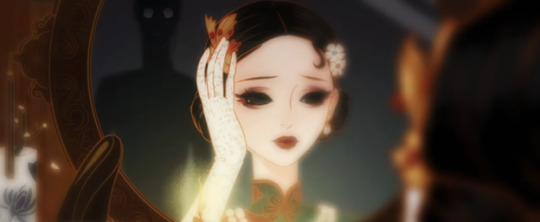
We know Flying Guillotine was indeed forming a “rebellion” based on the various mentions of all those he is likely working. The first and most obvious is Jade Dew from his ending, who is literally the one to give him the gun and comments “looks like the plan was a success” with a “cheery smile”. Then there’s potentially Silver Steed (even though he may have been the one actually responsible for Flying Guillotine’s family dying, it’s possible Flying Guillotine didn’t know this, and it’s possible Silver Steed intended to betray him later) and Lantsang, who Flying Guillotine tells the player to find for him and let her know “Silver Steed has been discovered”.
This hairpin being used to symbolize her being killed also parallels Michiko’s backstory. Specifically, it fits with her deduction 5, which mentions a “hatpin”, which was likely the object Mr. Donnelly used to kill Michiko after Miles had left for India.
Michiko’s Deduction 5
Feelings: This is a completely different kingdom. The women wear exaggerated hats.
Buckle Hatpin: A delicate butterfly hatpin. It is 6 inches long and has a very sharp tip.
This seems to be confirmed by her deduction 9, which once again references the hatpin at the same time as mentioning a “grudge” and how “he must know”.
Michiko’s Deduction 9
Grudge: Unrequited love, endless complaints.
A diary: He really doesn't know anything? No, that hatpin... he must know. He has to know.
On to comparing Sparrow to Norton.
A one-word summary about Sparrow is that he is a good boy that’s completely loyal to Lady Thirteen.
Yes, Sparrow does watch Lady Thirteen kill people and isn’t bothered by it, but for the most part otherwise, he is a good kid. At the very least, Sparrow never kills anyone himself, and everything he does is for Lady Thirteen. Yes, she’s said to be ruthless, but it also mentions during the “Second Tale” (from the anecdotes or “Tales Proven” according to the translation) that she is still capable of mercy: “A beauty who kills decisively and ruthlessly, but in her hidden depths one catches a glimpse of rare mercy”. Therefore I don’t think she’s completely evil, which is backed up by her design notes which state: “ever and resourceful, ruthless but never losing her kindness, in the eyes of the people, she had long surpassed such descriptors as good and evil”. As such, I don’t think Sparrow would be completely evil either for following her. In any case, Sparrow being a good boy could parallel how Norton really is, despite how he seems in his deductions. At the very least, it could be referring to how he used to be before his parents died and/or before he went to the 13 mines. He, like Sparrow, never directly killed anyone, though his actions (or lack of action in the case of Sparrow at the teahouse) due lead to people dying.
Sparrow is also described as loyal. This can combine with how he’s described in that “Second Tale” I mentioned earlier: “Sparrow may be a master of cunning, but to those he cherishes, he is sincere and pure”. To me, that sounds like Norton is the kind of person who has a small, but close-knit group of friends (kind of like the ones introverts have) vs. other people who are more the type to have large groups of friends. Him being sincere and pure to those he cares about can also be a mirror for Norton and how he is. We might be able to see this with Ronald and Inference in Golden Rose Theater. Ronald, like Norton and how he acts in his official tweet responses, isn’t the type to really form relationships. He is mostly a loner that pushes people away when they try to get too close, and tends to avoid social interactions whenever he can. But Ronald apparently does see Inference as a friend (and he is mentioned to really trust the Detective and describes him as one of the only 2 “good” people in his mind).
There’s also the strong bond between Sparrow and Lady Thirteen. This could be a hint towards how Norton felt about his parents before they died. That may also maybe explain why he is so extreme in his deductions and acts the way he does, because losing them hurt him so badly. Just like how much it likely hurt for Sparrow when he found Lady Thirteen dead, and just like Ronald felt when he had to deal with the death of his father.
The fact Sparrow and Ronald both lose a parental figure may help imply Norton himself lost his parents at an early age. The fact Lady Thirteen and Ronald’s father were both betrayed and essentially murdered, and it was by someone they were close to, could hint towards what happened to Norton’s parents. Someone close to them, that they trusted, betrayed them and got them killed. The only person we know related to Norton’s parents is Benny. If Benny is essentially represented by Scrooge in Golden Theater and Marshall in Season 10 Essence 1 (the essence with Andrew’s Desolate Sands skin, specifically based on the description for Gold Digger in the Chinese version), not to mention what we know about Benny and his strong desire of “returning to the mine” to find gold, it could be a way of hinting that Benny caused Norton’s parents to get killed for a reason related to that and/or to his greed.
Sparrow is constantly described as being smart: with how he constantly watches the player (being on guard until he finds out more about them, and/or just making sure to watch out for Lady Thirteen to guarantee the player doesn’t do anything to harm her), how he’s described as having “day-to-day sharpness and slick wit”, being called a “master of cunning”, being the one in charge of gathering information, etc… This links to Norton being quite smart himself. It’s related to his willingness to learn, his desire to improve his skill and ability, eagerness to learn new techniques, etc… That was why in the letters of recommendation he’s mentioned to not stay with any one employer or place for very long. He’s getting different experiences, so he’d learn more things and be better at his job (and at mining). Then there’s also how he had to be incredibly smart and talented to be able to utilize magnetic prospecting after Norton changed from being a miner to a geological prospector (after getting the meteorite chunks which he made into his magnets)
The fact Sparrow looks innocent and childlike, but in fact uses this advantage to gather information (make people drop their guard with him, get them willing to talk to him or talk more than they would otherwise) is similar to how Ronald in the Golden Rose Theater gathers information as well (to use against Scrooge so he can get revenge and also so he can become the owner). This relates to how Norton is a good actor. He’s good at pretending, getting people to see him a certain way, and good at hiding his true intentions and how he’s really like (someone who doesn’t like social interaction or making relationships, a loner, someone desperate to change his fate, etc…). The character relations page even references this when it talks about how Norton trying to gather information from the old miners in hospice and how he managed to swindle Benny of the list of 13 mines.
Finally, there’s also how Sparrow is described as “listless” during the scene Lady Thirteen kills Silver Steed.
Listless means: having or showing little or no interest in anything; languid; spiritless; indifferent. I think this may be a good description for how Norton normally is, especially if you think about some of the tweet responses he gives that are a bit darker than his other, happier ones. It could also relate to how Norton is after the accident. He was traumatized by the entire thing, to the point he desperately wants to avoid the “darkness of the mine” and changes his job to geological prospector just to keep from having to go back into the mines. He’s guilty over the deaths of the miners (which his Soul Catcher skin hints at, as well as how in at least 1 of his tweet responses he mentions “don’t forget” in regards to the Golden Cave), which is why he’s somewhat self-destructive (the fact he smiles when you down him in game, meaning he seems to be happy about possibly dying or suffering). Basically, the accident really changed him, leaving him in a state you could describe as “spiritless” or “indifferent”.
These descriptions can apply to Norton in general too. He essentially doesn’t really care about anyone, which also relates to how he pushes people away, avoids social interactions, and is pretty much “indifferent” and shows “no interest” in a lot of things, except for himself and changing his fate.
To go to Sparrow’s skin description, it states how he’s never been shown kindness. This sounds similar to what we see in the Famitsu article. This article talks about how, before Norton went to the 13 mines, people were intimidated by him and how hard he worked to escape his fate. Then it goes into how, after the accident, people didn’t comfort him and actually avoided him, despite how he was currently in the hospital recovering from the injuries he received as result of the accident. Then there’s how Norton is a miner. They were treated horribly back in those days (essentially just like slaves) and working conditions were incredibly bad (there was a really high chance of dying on the job, and owners didn’t care about spending money on protections, health, or safety). Not to mention they were pretty much paid next to nothing, so Norton, especially since his parents had died and left him alone, was really poor. Basically, Norton has lived a tough life just like Sparrow.
About the other parts of the skin description, Sparrow having to blend into the adults’ world relates to Norton having to grow up (and mature) quickly after his parents died. With them gone (and at an early age too), he had to learn to take care of himself. He had to get a job to get food and some shelter, and as a miner he also had to deal with horrible conditions, a horrible environment, and horrible people. And all of this he had to do on his own.
Regarding Sparrow learning to disguise himself, this goes back to Norton (and Ronald) being “actors”. They pretend. They act a certain way around people and they don’t really show their true selves (not to mention they keep people away mostly, while Ronald literally wears a mask). Based on Sparrow’s description, learning to disguise himself seems to have been necessary for his survival (the same way Lady Thirteen had to according to her design notes), so its likely that Norton had to learn to do the same for the same reason.
Moving on to another thing I want to take note of, for Sparrow’s skin, I want to mention how his magnets actually have a message written on them.

The left one is “smooth sailing”. This is an idiom that means “to have a pleasant journey”.
The right one is “may you invite fortune and become more and more treasure”. This is another idiom that means “we wish you success and riches”.
Both are the sorts of things Sparrow would wish for himself (and for Lady Thirteen).
For the first one about “smooth sailing”, this relates to one of his deductions that talks about not being unlucky forever. Smooth sailing can also relate to Norton’s goal, to change his fate and have a more “pleasant journey” than the one he currently has. Pleasant meaning he doesn’t need to work at a job where he’s paid extremely little despite working so much, where he has to risk his life everyday surrounded by people who only care about themselves, and working for employers who only care about money and not at all for their employees. A journey where he doesn’t need to worry about whether he’ll live to see tomorrow or have enough food on his table.
For the second idiom that says “may you invite fortune and become more and more treasure”, this obviously relates to what Norton wants, meaning his desire to change his fate and acquire wealth. It could also specifically relate to how the 13th mine is his last hope and to his wish to find gold there.
Another note about Sparrow’s lion hat is that (in Chinese) it might be a symbol for driving away evil or bad energy/spirits, famines, and plagues. Basically, it protects people and things from threats and harm (or from spiritual influences), and may also bring good fortune.
A symbol for driving away evil (spirits) could relate to Norton and him being affected by the meteorite. The good fortune bit again relates to Norton’s desire to change his fate and acquire wealth. For Sparrow, this might mean he’s hoping to protect Lady Thirteen, kind of like how in that one part of Lady Thirteen’s ending he comments on Lady Thirteen being in danger. This could also mean that Norton is good at noticing things and has good instincts.
The very last thing I’ll point out to go with Sparrow being loyal to Lady Thirteen is how we can see in one of the posters for the event that Norton signed his name on a contract (of sale I think?).

This could be the scene when Sparrow first joined Lady Thirteen. It could be a way for Sparrow to prove his loyalty. It may also relate to how Lady Thirteen essentially adopted Sparrow (after she found him, whenever that was).
#idv#identity v#Teahouse Tales#norton campbell#prospector#michiko#geisha#wu chang#idv norton#identity v norton#idv michiko#identity v michiko#idv wu chang#identity v wu chang#idv prospector#identity v prospector#idv geisha#identity v geisha#sirenjose analyses and theories
93 notes
·
View notes
Text

Ashes of Memory 2 Live Action Trailer (Norton) Summary
(I can't do the same thing I did on twitter, as Tumblr won't let me upload more than 30 images at a time, so for now I'll just post my TLDR version)
TLDR (important points only):
trauma when young

initially cared about Benny (who he visited regularly, and who has an issue with his legs, maybe can't use them) + focused on hard work
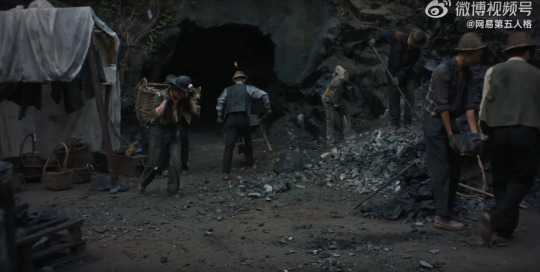
is the letter from his parents? (Maybe his mom when she left)
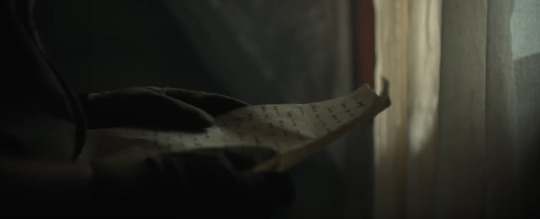
desire to get out of poverty after seeing the rich live comfortably and the poor suffer
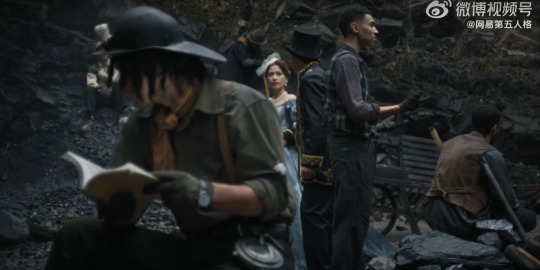

Benny shares with Norton his "golden plan" when Norton discusses his desire to get out of poverty with Benny (+ Benny laughs when Norton looking frustrated then stops when sees Norton looking at him before looking pensive. Feels suspicious)
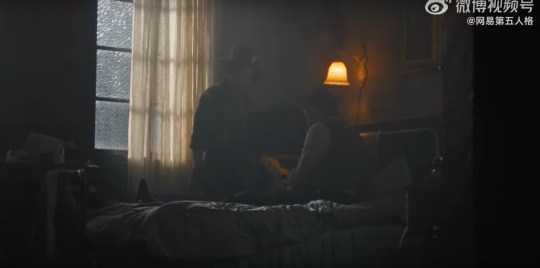
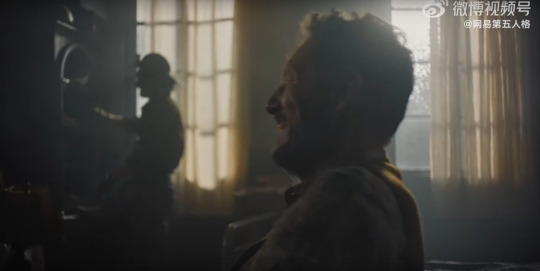
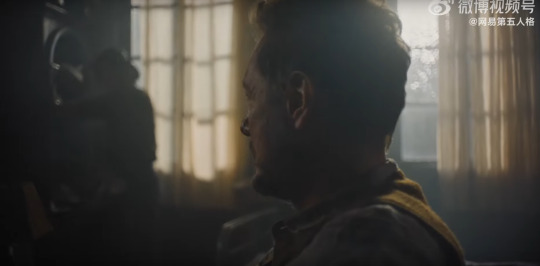
watched his father dying of black lung (likely saw his dead body too)
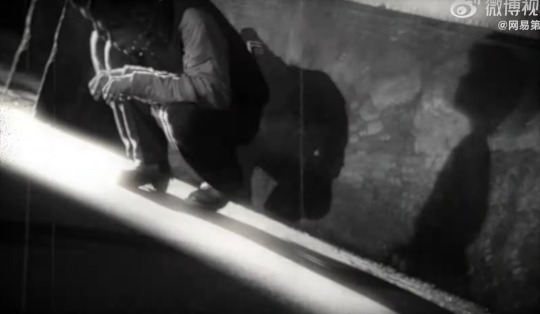
Parents didn't get along/argued. Young Norton actually watched them argue. Mother eventually left him/them.
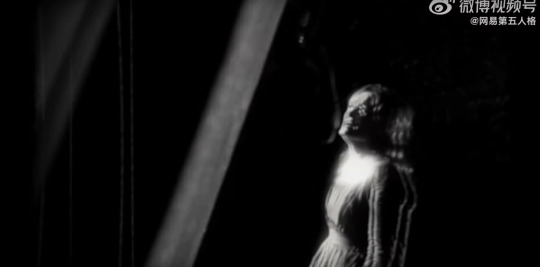


Norton decides he needs to try to find gold and to go with Benny's plan.
Mental state deteriorated and displayed bipolar disorder as he attempted to find gold by exploring the 12 mines (before Golden Cave) + health issues worsen over time
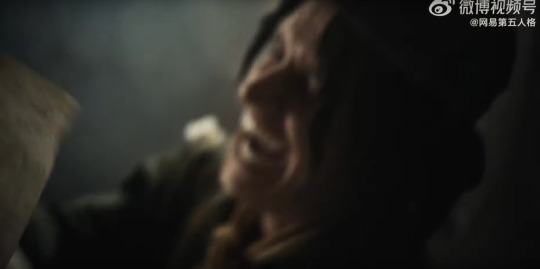
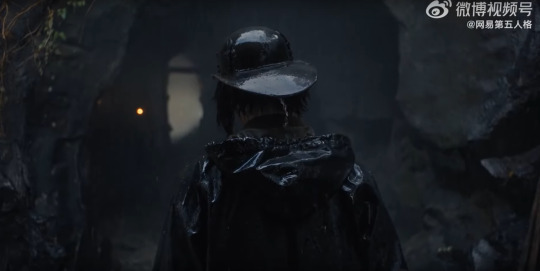
depression grows when fail to find any gold after so long and thus fail to escape poverty

alone, talks to almost no one besides Benny
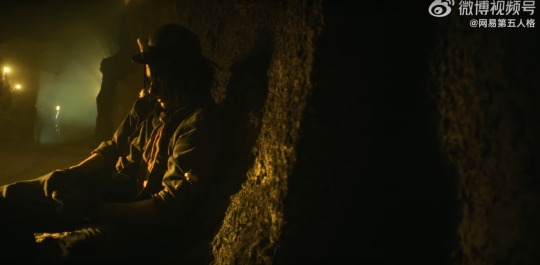

noticeable change in behavior when the green light shows up. Shows no concern for Benny or anyone at that point. Crazier? (+ Green light seemed to have encouraged the idea about using dynamite). The map he takes from Benny should be for Golden Cave (aka, Norton only goes to Golden Cave and starts the plan that involves the explosives after the green glow shows up)
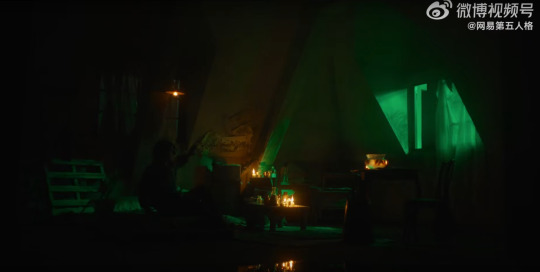
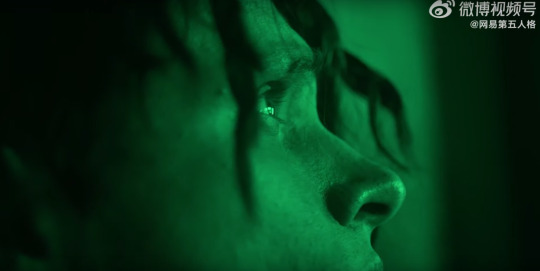



leads miners into cave, falls unconscious, noticeable change in behavior upon awaking

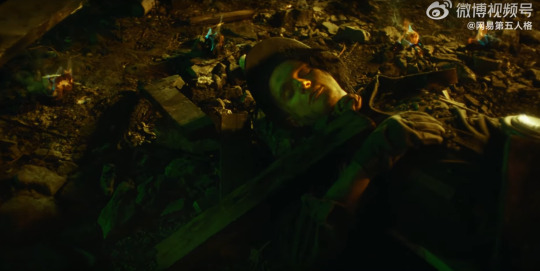

frightened of/freaked out by something (not just miners), seems to be looking back at the green glow?

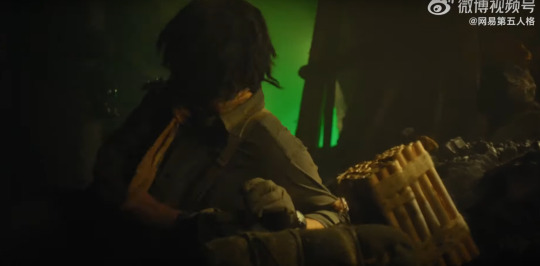
Norton escapes mine collapse. Alice sees Norton as his hunter version. We see Hunter Norton humming in Darkwoods at the end.


------------------------------------------------------------------------------
Side Note:
The idea young Norton had to watch his father dying of black lung, his parents fight, mother leave, potentially see his own father's dead body, then forced to grow up alone and work at such an early age is just 🥲💔
Especially if all this happened before he was 8 or 12…
#idv#identity v#Ashes of Memory#norton campbell#prospector#Fool's Gold#fools gold#idv norton#identity v norton#idv prospector#identity v prospector#idv fool's gold#identity v fool's gold#idv fools gold#identity v fools gold#hunter norton#idv hunter norton#identity v hunter norton#sirenjose analyses and theories
62 notes
·
View notes
Text
Norton's Humming + Research into 19th Century Mining Songs
Video: Norton/Hunter Norton’s backstory trailer, but audio edited so only the background noise and Norton’s humming are heard.
There are a few more notes besides the 6 we hear him humming most of the time if you listen closely. But then it repeats.
Is this an original song or no?
It does have a similar feel as the theme for the theme of The Shining: https://youtu.be/g_nsZ8yt1KA?feature=shared
And the theme for The Shining is apparently based on Dies Irae or “Days of Wrath. And it’s curious that this actually appears in quite a few movies apparently: https://youtu.be/0hL1m4hGBVY?feature=shared
Since I’m talking about Norton’s humming/song again, even though I haven’t been successful finding any songs that match up exactly, I might as well share some of my findings, as there’s a number of interesting mining songs (I tried to focus on songs from the 19th century):
- Collier’s Rant: one of the oldest mining songs (maybe written 1650). It originates in the Northeast of England/Northumberland, and so its in their dialect (Geordie). Based on how mine disasters have been happening for a long time and how miners viewed the pit with suspicion. It was part folk lore, fright, and superstition that people believed many disasters were caused by the devil and his henchmen who lived at the bottom of every pit. (*Side Note: "mara" in the song means workmate)

- Blackleg Miner: 19th century song relating to miner unions/strikes. Originally also from Northumberland. It depicted violence against strikebreakers by unionized strikers. It may have originated from the miners’ lockout of 1844? Regarding the term “blackleg”, this referred to strikebreakers, as they returned covered in coal dust which gave away that they had been working while others were on strike.
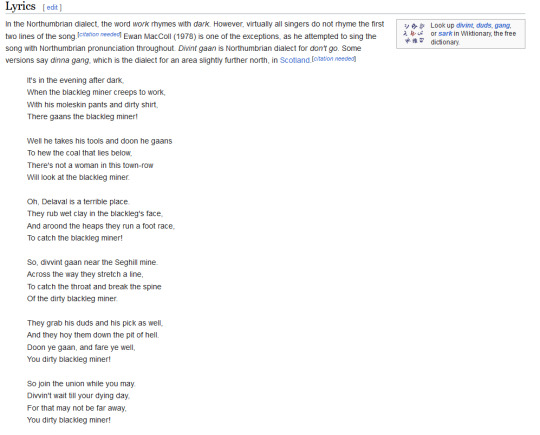
- Miners’ Lullaby: about how miners brought tins of morphine with them, enough to kill a man, in case they were trapped underground so they could at least have a peaceful death
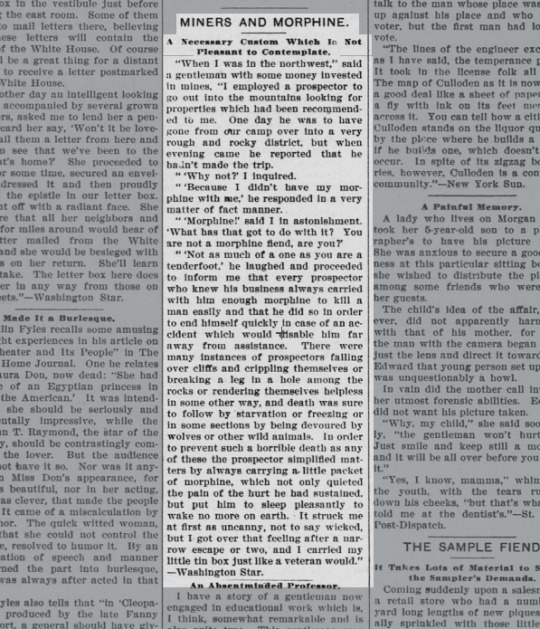

- Gresford – Miner’s Hymn: honors the mining disaster in 1934 in North Wales

- Miner’s Lifeguard: for the Welsh Sliding Scale dispute in 1898?

- Others: In the Days of ’49, California As It Is, Coorie Doon, Byker Hill, Which Side are you On, Farewell to the Monty, Farewell to the Rhondda, Joe Bowers, the Blantyre Explosion, Trimdon Grange Mining Disaster

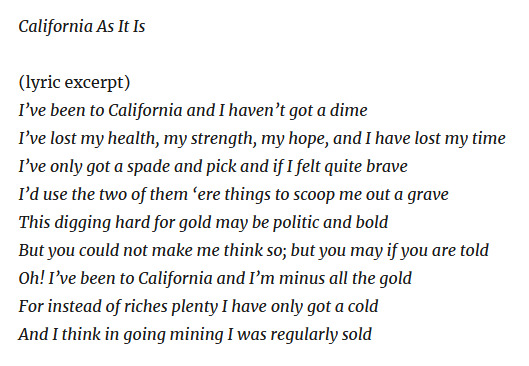
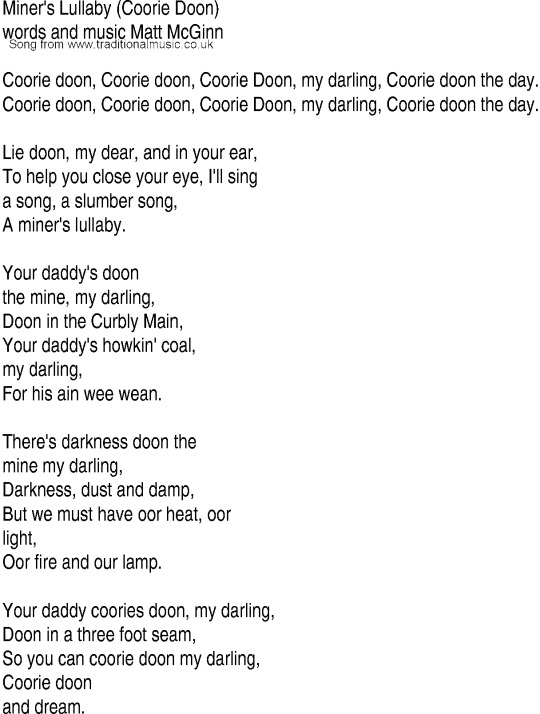
#idv#identity v#norton campbell#prospector#Fool's Gold#Fools Gold#idv norton#identity v norton#idv prospector#identity v prospector#idv fool's gold#identity v fool's gold#idv fools gold#identity v fools gold#hunter norton#idv hunter norton#identity v hunter norton#sirenjose analyses and theories
68 notes
·
View notes
Text

Analysis of Norton's dish: Roast Beef with Pudding
The pudding is likely Yorkshire Pudding/Plum Pudding
Roast beef with Yorkshire Pudding are traditional dishes in Great Britain, especially in Northern England
Eaten by a variety of people, from the lower classes to the higher classes, and could even be found on the royal family's menu. Commonly served on Christmas day to workhouses/poorhouses.

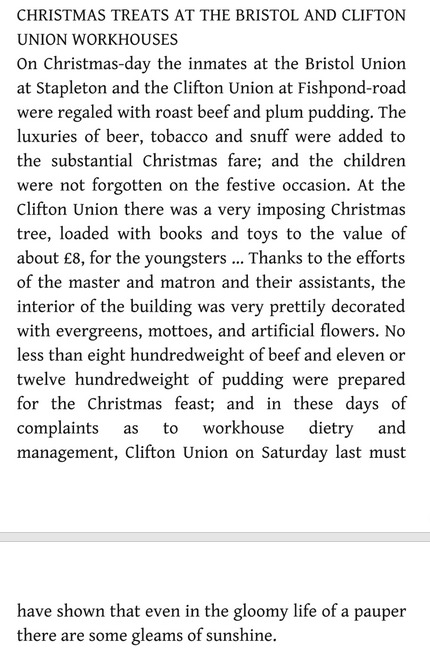
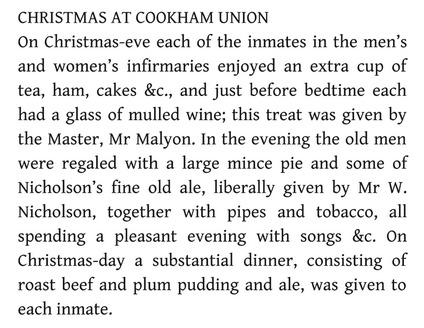

“roast beef served with plum pudding is the most evocative of past traditions of hospitality. It was once Britain’s prime celebration dish and a potent symbol of the nation’s character and cohesiveness.”
Roast Beef
The history of roast beef dates back to King Henry VII in 1485. Henry’s bodyguards (Yeoman of the Guard) received part of their salary in chunks of beef. This practice took place up until the 1800s and allegedly they earned the title ‘beef-eaters’. The story goes that King Henry’s guards started the Sunday roast beef tradition by cooking the meat (usually fillet, sirloin or shoulder) in the morning before going to Mass. The practice became a habit during the 19th century. Women would leave the meat to cook in their village baker’s oven, which closed on Sunday, and pick it up when back from church, perfectly roasted.
Eating beef was reinforced by a tradition outlined in William Kitchiner’s 1871 volume “Apicius Redivivus: Or, The Cook’s Oracle”. In his book, the author recommends eating about 3 kilos of meat per week to stay healthy. This underlined the central role that meat played in the British diet and described the practice of cooking beef sirloin for at least four hours over a spit. Sunday was the one day of the week when people had four hours to spare to roast beef. Fortunately a massive lump of meat could feed the family. They would then use it again in stews, pies and as cold cuts for the rest of the week. As the cost of meat and coal began to plummet working people continued the habit of roasting beef every Sunday.

Yorkshire Pudding
Traditionally, the word “pudding” referred to homely and rustic desserts that were commonly eaten by the lower classes. These could be either sweet or salty. Pudding dishes are mainly made with flour and have a cake-like consistency. But originally, pudding was a meat based, sausage-like food in Britain (ex: black and white puddings). However by the late 1700s, the contemporary puddings were no longer meat based and this change incidentally coincided with the first published mention of the batter pudding.
The Yorkshire Pudding is a baked pudding made from a batter of eggs, flour and milk or water. It has become a common British side dish which is versatile and can be served in many different ways – although mainly recognized as an accompaniment to a roast dinner.
It has been suggested the pudding was given the name “Yorkshire” due to the region’s association with coal and the high temperatures this produced that helped to make crispy batter.
The 1st recorded Yorkshire Pudding recipe appeared in a 1737 book titled "The Whole Duty of a Woman"and was listed as "Dripping Pudding". Wheat flour had come into common use for making cakes and puddings, and cooks in the north of England had begun baking batter puddings while their meat roasted to make use of the fat that dropped in the dripping pan. Batter was placed in a hot pan over the fire with a bit of butter, then placed under a shoulder of mutton in the oven in place of a dripping pan to collect the fat.
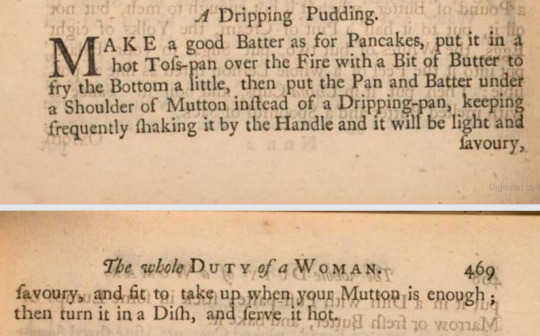
The next recorded recipe launched the pudding from a local delicacy to Britain's favorite dish. It appeared in "The Art of Cookery, Made Plain and Easy" by Hannah Glasse in 1747. Glasse was one of the most famous food writers of the time, and the popularity of her book spread the word of the Yorkshire pudding. This distinguished the light and crispy nature of the batter puddings made in this region from batter puddings created in other parts of England. Back then, the puddings were flatter than they are served today and would be served as a first course filled with thick gravy to help to suppress the diner’s appetite for expensive meat with cheap, plentiful ingredients. The main course of meat and vegetables would traditionally be served with a white sauce, as the gravy used up for the pudding. Poorer households couldn’t afford meat, and would use dripping, flour, eggs and milk to make puddings which would be served with gravy as the only course. Then there was another recipe by Mrs. Beeton, another of Britain's famous food writers of the 19th century, but her 1866 recipe omitted one of the fundamental rules for making Yorkshire pudding: the need for the hottest oven possible. The recipe was also erroneous in instructing the cook to bake the pudding for an hour before placing it under the meat. Yorkshire folk supposedly blamed her error on her southern origins.
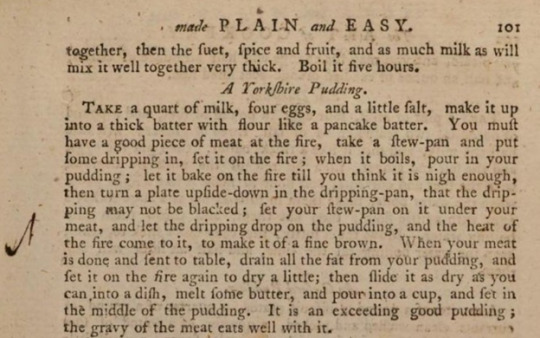
The point of traditional Yorkshire pudding was identified in its previous name, dripping pudding. The batter was placed in a large pan into which had been allowed to drip the fat and juices of meat roasting on a spit over the fire. Once the pan had been heated in the fire and the fat was bubbling, the batter was poured into it and placed under the roasting meat as it continued to turn on the spit, thus catching all the remaining drippings. Meat was very expensive through much of the eighteenth century, and none of it was wasted, even the drippings produced when it was roasted. The fat from the meat drippings provided crucially needed calories, particularly for men doing heavy manual labor. The drippings also imparted a rich flavor to the Yorkshire pudding, and the high heat needed to roast meat was necessary to ensure the pudding would rise and had a light and crispy texture.
Traditional Yorkshire pudding was not served with the roasted meat, it was served before, as an appetizer or starter course. The pudding was cut into smaller pieces which were served drenched with the gravy made from the roasted meat. It is generally believed that this was done to take the edge off the diners’ appetites so that they would be satisfied with the small portions of the much more expensive meat which would be served during the second course. In poorer households, the children would receive only Yorkshire pudding and gravy, while the adults were served both the pudding with gravy and the roasted meat. Since the gravy was usually all consumed with the first course on the Yorkshire pudding, the meat and vegetables which typically comprised the second course were served with parsley or a cream sauce. Though Yorkshire pudding could be made with any roasting meat, the eighteenth-century Englishman was very fond of his roast beef. Thus, by the turn of the nineteenth century, roast beef and Yorkshire pudding had become a quintessential traditional meal throughout England. Even before the Regency, roast beef and Yorkshire pudding were a favorite Sunday dinner, especially among the middle and upper classes. There were even many among the aristocracy who enjoyed such a meal.
Going back to the mention roast beef with yorkshire pudding as common in workhouses on Christmas Day, a ballad was written by George Robert Sims for the Christmas of 1877. It served as a criticism of the harsh conditions in English and Welsh workhouses under the 1834 Poor Law
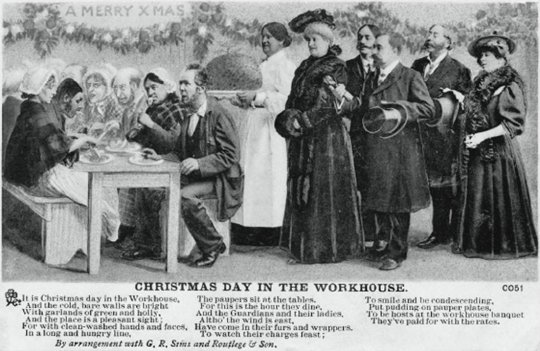
Regarding the in-game dish, from the looks of it, the roast beef is being served in a large Yorkshire pudding, which isn't too abnormal either (ex: places in Yorkshire sometimes might serve your dinner in a large pudding)
#idv#identity v#norton campbell#prospector#idv norton#identity v norton#idv prospector#identity v prospector#sirenjose analyses and theories
55 notes
·
View notes
Text

1 culprit behind the fate of Mary Kreiburg, the Racecourse tragedy, and Manus' disappearance?
Even though Manus said he would leave for Austria to talk to Mary's family, it seems he never arrived. That means something had to happen to him before the 27th. Could whoever was behind the rumors about Mary and Cyanus going mad have also caused Manus' disappearance?
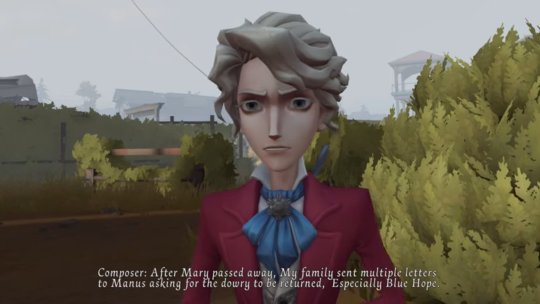

Someone paid a lot to try to find Mary's body. Frederick said they only wanted the gem. As Mary's 4th letter says people made a "big deal out of a jewelry box" aka Blue Hope, did someone cause everything (Mary's death, Cyanus going crazy, and Manus' disappearance) for that gem?
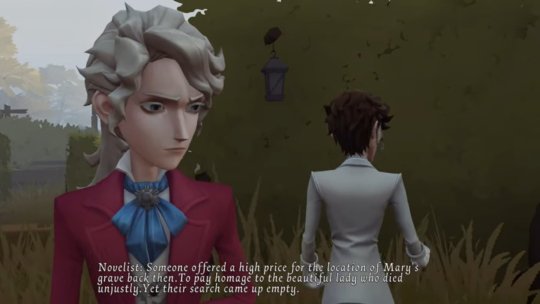
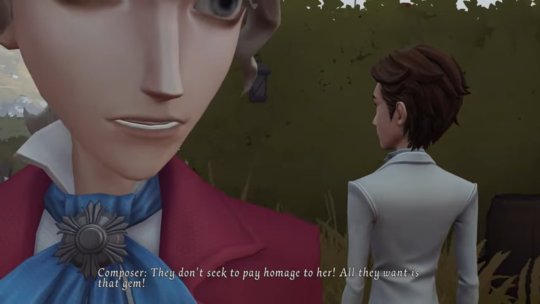
No wonder Frederick says the gem is "cursed". Though that then makes me wonder why it is seen as "cursed"? What happened in the past to give it that sort of reputation? Besides we now have 2 people tied to it, potentially both Mary and potentially Manus, dead because of it...
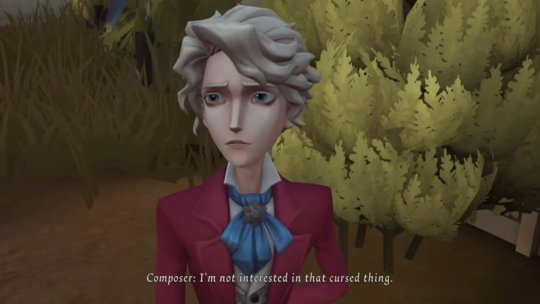
(Yes of course my stupid obsessed brain again wonders if it was Count Barriere, who I also wonder if he was behind the DeRoss tragedy as well, considering that one also seemed to be at least somewhat financially motivated).
#idv#identity v#ashes of memory#mary kreiburg#mary de capet#manus de capet#frederick kreiburg#composer#idv frederick#identity v frederick#idv composer#identity v composer#sirenjose analyses and theories
66 notes
·
View notes
Text
Theory regarding Kevin's 4th Letter

TLDR:
Orpheus sent Kevin to drug contaminated racecourse
Kevin drugged in basement (like Alice) before able to leave
Both Kevin and Jose have strange headaches that go away soon before they're to leave
Kevin & Jose in Emma's 2nd game?
Alice went to the racecourse. Orpheus has her dig up the box/gem herself (while they not around). Soon after, she hallucinates Mary as Frederick, and shortly thereafter is knocked out (after something flies into her face).
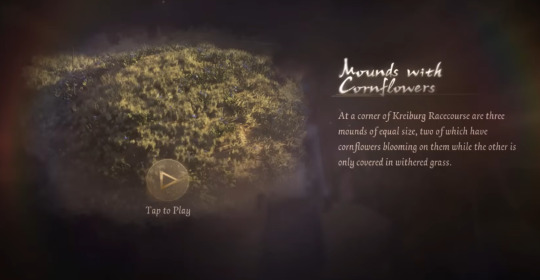
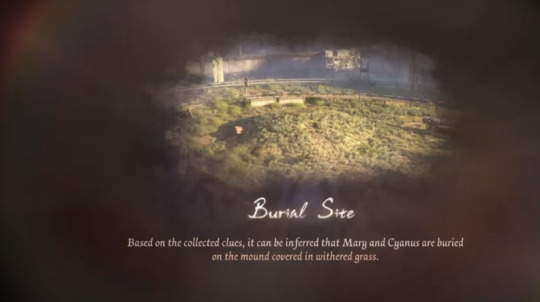
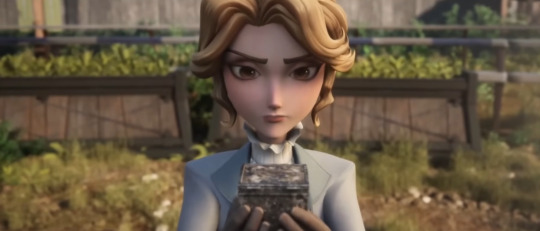
Kevin exits his game after drinking a drug. Orpheus later tasks him with “repairing the racecourse”. Once he’s finished, Orpheus holds a banquet for him, during which Kevin talks about his past. Orpheus presses him regarding whether Kevin remembers Angelina is alive or not. Following this, Kevin discusses having had frequent headaches, but they’ve gone away. He suspects the wine. Despite his headaches having gone away, he says “everything I said grew increasingly blurry in my mind”. In any case, he states he’s leaving “once I wake up in the morning”.

The backstory for Kreiburg Racecourse explains that, on the opening day of Lily’s father’s “expensive new horse racing series”, Cyanus, the “White Steed of Death”, “went berserk and caused a trampling incident” (and potentially scaring other horses as a result). In Ashes of Memory part 1 it describes it as a “fatal stampede”. Before this, it was said Mary Kreiburg would pin a cornflower on Cyanus and the rider as a “victory blessing”.


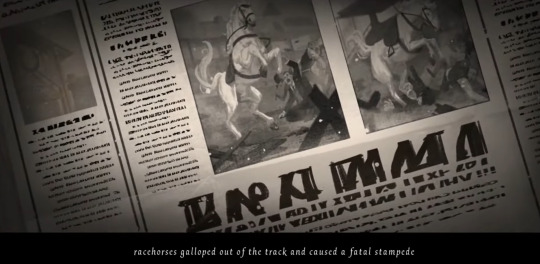
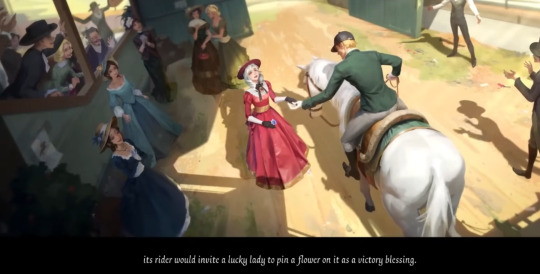
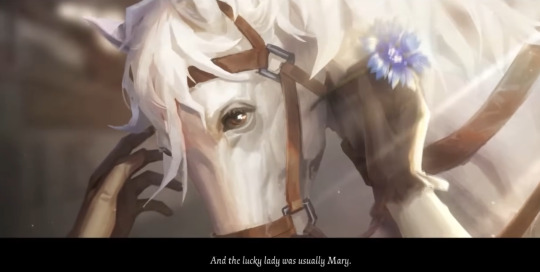
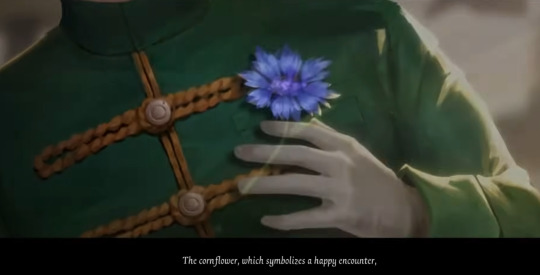
Both Alice and Kevin go to the racecourse. If there were drugs somewhere at the racecourse, such as in the ground or in the cornflowers (or on/in the box potentially), to make Alice hallucinate, potentially set up purposefully by Orpheus, it’s possible Orpheus did the same thing to Kevin. No, Kevin doesn’t hallucinate, but we do see he’s having issues remembering. Maybe Orpheus just switched out the drugs he was using from Siren Song for Alice to Hydra or Mnemosyne for Kevin.
(I wonder then if Orpheus purposefully sent Kevin to the racecourse, knowing what would happen and/or to affect Kevin even more with the drugs over a longer period of time. I wonder if he sent anyone else that escaped their game to do this before they could leave to do the same to them.)
While comparing Alice and Kevin, Kevin says he plans to leave in the morning, but there’s no proof that this is exactly what happened.
Alice was knocked out twice (likely both times by Orpheus), and after the 2nd time she was sent to the secret basement and given Hydra. It’s possible something similar happened to Kevin. Potentially either he was knocked out before he could leave or was taken while he was out (potentially drugged to ensure he stayed asleep, likely with the Orpheus coma drug) and sent to the basement at the point. Once there, Orpheus could either give him Mnemosyne to forget what’s happened during the game and/or Hydra to reconstruct his memory to make him think Angelina is alive.
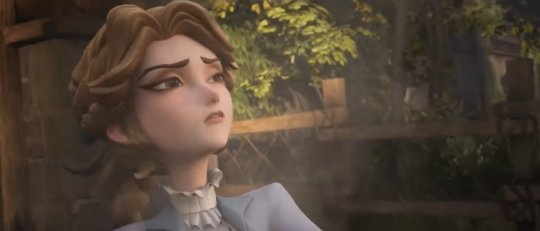

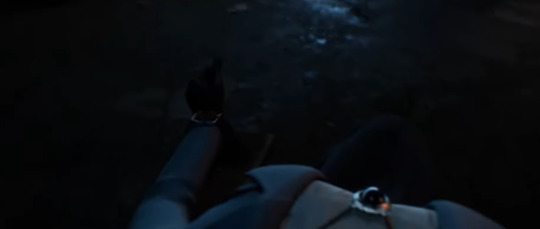
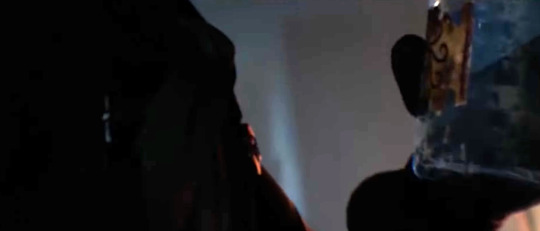
We already know Orpheus is quite interested in messing with Kevin’s memories to make him think she’s alive, to the point Kevin says Orpheus “ignored my unhappy silence and pried, trying to force an answer out of me. Shattered glasses, overturned silverware, shaking figures... It wasn't until I expressed my desire to leave that he realized how rude he'd been. After repeated apologies, he returned to his polite self, then nodded with satisfaction and went on listening to the story”. Considering that sort of reaction, it would be easy to believe Orpheus isn’t ready to let go of Kevin yet, and thus would be interested in reusing him in his experiments.
Now I want to go back to Kevin mentioning his headaches. Right after this he says “everything I said grew increasingly blurry in my mind”. Oracle from the 2nd anniversary did have some side effects beyond the main one (namely dizziness, and the manor owner said he wanted to work on eliminating those side effects). And even though it’s not part of the main story, the Eternal Beauty and Delphi drugs from Truth & Inference that are described in the Zinaida anniversary event seem to clearly be meant to parallel or at least relate to Orpheus’ drugs from the main story, and these 2 drugs were described to have side effects (this time hallucinations and drowsiness). So I think it’s likely Orpheus drugs also had side effects, some of which could include “headaches”, while another drug could cure the headaches but at the same time cause his memories to blur.


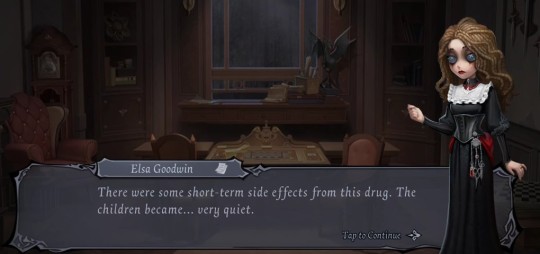
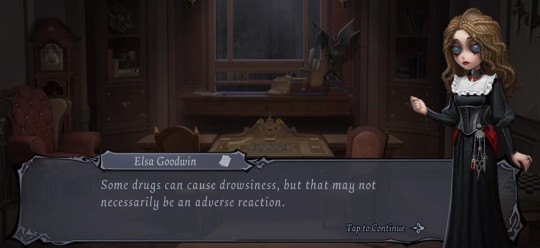

Actually, the Oracle drug would fit here. If the food at the banquet Orpheus provided had Oracle, while Kevin ate it, there’d be no effects, but once he stopped taking Oracle, he would forget everything that happened while he had been taking Oracle. Only issue is Netease seems to have replaced Oracle with the 4 drugs we know of from the Time of Reunion drug list (Orpheus, Mnemosyne, Siren Song, and Hydra). But who knows. Maybe one of them does something similar (or they could work in Oracle somehow). Anyways.
Speaking of Kevin’s headaches, I happened to notice that Jose actually describes something similar happening to him. In Jose’s 4th letter, he talks about waking up with “another splitting headache”, which implies he’s had more than one headache. His headache though seems to have been “alleviated” once he found the umbrella.
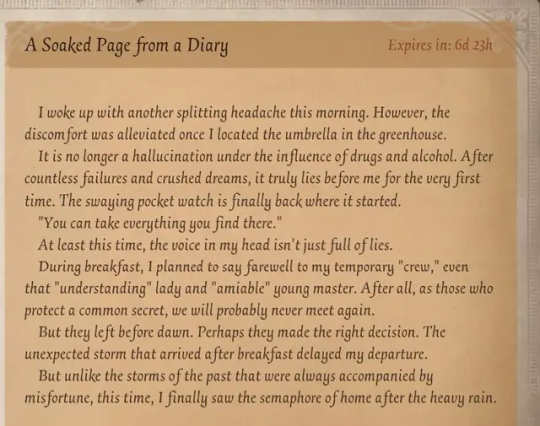
In the letter it states “’You can take everything you find there.’ At least this time, the voice in my head isn't just full of lies”. It’s possible Orpheus was the one to tell Jose this. Jose then says he plans to leave soon.
It’s curious both Jose and Kevin complain of headaches, both after they leave the game, but then the headache goes away soon after they complete their tasks (Kevin fixing the racecourse, Jose finding the umbrella) and soon before they are to leave. Not to mention Orpheus seems to have likely been involved with both.
Kevin we know Orpheus is interested in to make him think Angelina is alive.
Jose we know is someone Orpheus “treasured the opportunity to use”, to the point he considered suspending the experiment when Jose’s mental state seemed to deteriorate too much, and calls Jose a “’gift’ from a friend who passed away”.
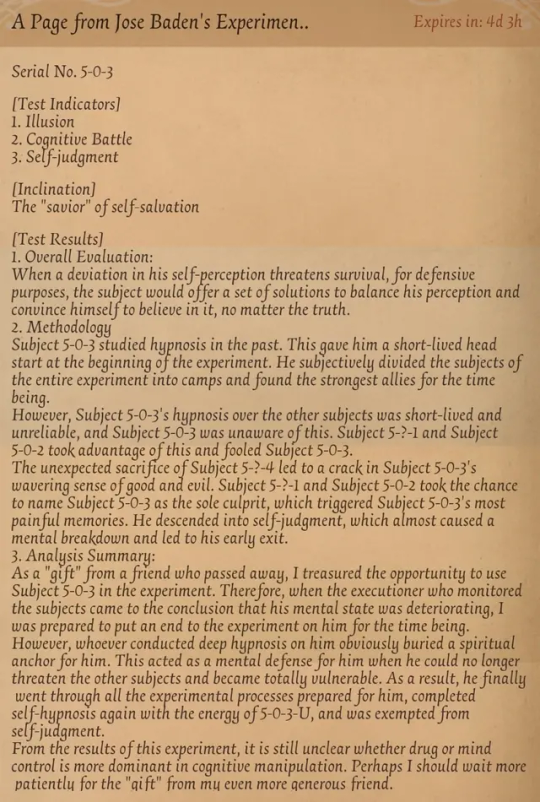
Orpheus was the one to throw Kevin the banquet before Kevin leaves, and Jose Orpheus may have told Jose to go to the room he found the umbrella in and that he could take whatever he found.
Either potentially could’ve been drugged before they could actually leave, so Orpheus could ensure he could reuse them in his experiments.
Kevin potentially could’ve been exposed to drugs while at the racecourse, as well as potentially in the food Orpheus gave him during the banquet. Jose could’ve also been subjected to drugs, potentially in the breakfast he ate before leaving, or potentially somewhere in the room he found the umbrella in (what if the umbrella itself had been sabotaged or contaminated with drugs?)
Considering the umbrella is still at the manor when Alice is there, we know something happened to Jose. And if something happened to him when he thought he was able and ready to leave, something similar could’ve happened to Kevin.
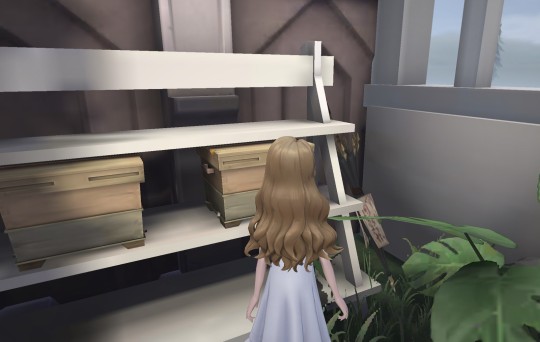
If anything, there is Emma’s 2nd game. After she escapes from Arms Factory, we know she was put with another group of people. These “new friends” had “warned me in secret to keep a record of everything, just in case my memories would start to deceive me. They said their memories were like children’s jigsaw puzzles, and there were gaps and parts that did not fit”. This comment tells us that the others Emma is with have had their memories tampered with. They have forgotten some things, meaning Mnemosyne is likely to blame, while other parts “did not fit”, implying Hydra is likely the cause.
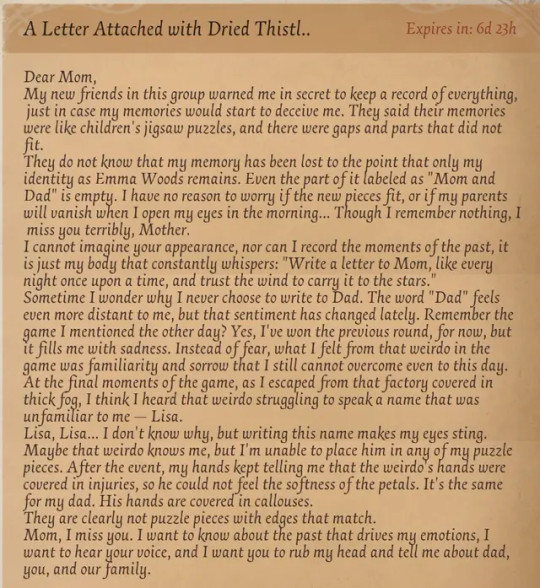
We know both Kevin and Jose have memory issues. Kevin is the most obvious, though Jose we know has seemingly forgotten parts of his game, considering he doesn’t seem to remember what happened to the others in his game (Edgar and Vera at least). There’s also how he describes seeing the umbrella “for the very first time” in the greenhouse, even though we know the umbrella was at Lakeside during his game.
At least for this latter issue, it is possible that Jose went to the ship where the umbrella was at and didn’t actually see the umbrella while he was there. Wu Chang’s 3rd letter states Jose noticed an “abnormal watermark”, but never specifically says he saw the umbrella. We know Patricia describes Jose as a “psychic medium” so it’s possible Jose at that point forgot everything, but it’s hard to say.
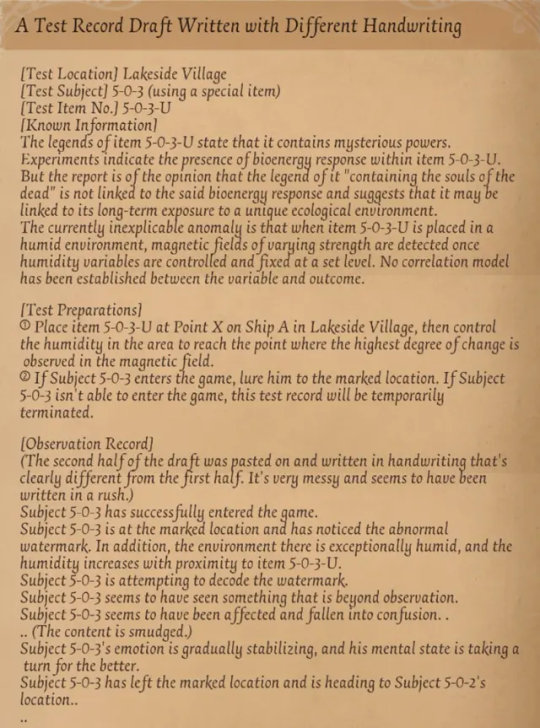
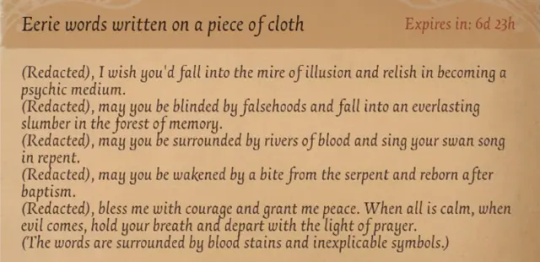
In any case, the point is it’s possible Kevin and Jose could’ve been some of Emma’s “new friends” in her new game/group. That then just leaves what happened to them and Emma afterwards, by the end of that game.
(This is honestly less of a complete theory and more I just started writing this because I noticed some curious similarities I couldn’t let go of while rereading stuff, even though I didn’t quite know what everything may mean yet due to a lack of info at this time)
(Though it’s possible something else happened to Jose.
It’s possible he disappeared similar to those in game 6 considering Jose’s 4th letter being wet and the parallels/implications from the Christmas event and his skin)
(It’s also possible whatever happened to him during the game happened again considering the heavy rain/storm and how this affects the umbrella/magnetic fields, and we know from Wu Chang’s 3rd letter this did affect Jose, and it ties to his Bobolink skin)
(So for all we know Jose just disappeared, just without the umbrella. Or maybe he is with Kevin in Emma’s 2nd game. For now all I can do is suggest possibilities. Hopefully we get more answers soon)
#idv#identity v#jose baden#first officer#kevin ayuso#cowboy#idv jose#identity v jose#idv kevin#identity v kevin#idv first officer#identity v first officer#idv cowboy#identity v cowboy#sirenjose analyses and theories
41 notes
·
View notes
Text
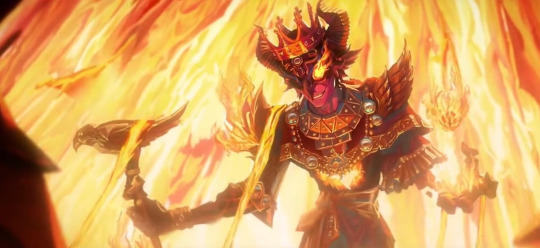
Golden Cave Eye = Cyaegha Theory (Updated)
No one may care about my Cyaegha theory, but we have:
Hunter Norton holding a firey eyeball,
Norton walking to towards a moon,
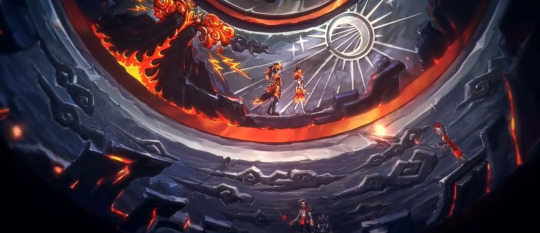
Norton being lured + doing bad stuff,
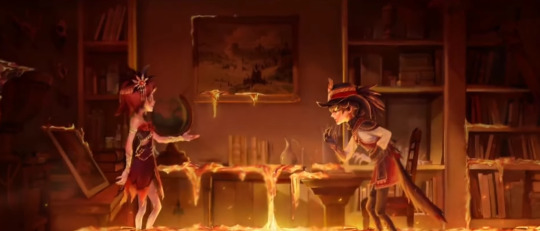
and head pain.
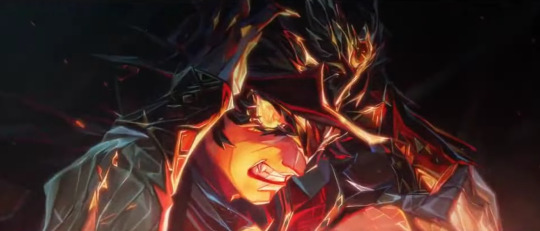
Cyaegha is a literal (green) eye, depicted as the moon, does hypnotic call, and controls people.
I mean, we also had what to me looks like it could be a picture of the Golden Cave eye that Norton drew in his room in the live action trailer, as well as a picture of his magnet. A magnet made from a meteorite in Golden Cave that is said to affect him and make him extreme.
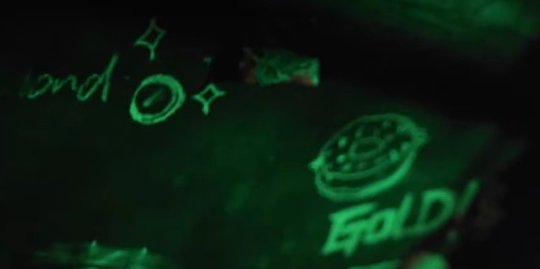
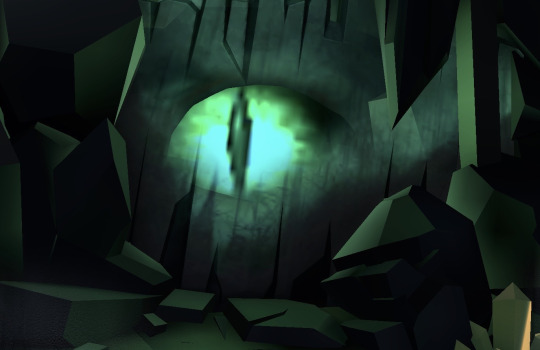
And similar to the picture of Norton and Margie walking towards a moon in the essence trailer, we had a green glow coming from outside Norton's window in the live action trailer, with an angle like it could be the moon (and light coming from outside the window also like moonlight).
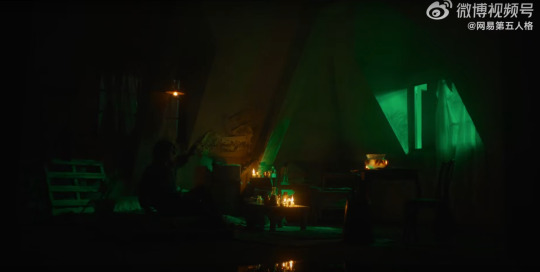
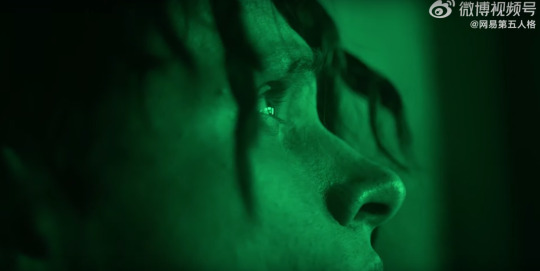
In the live action trailer, we see a visible change in his behavior once the green light appears. It's only at this point he shows no care for others around him, and also only then that we see him at Golden Cave, bringing other miners, and preparing the explosion.

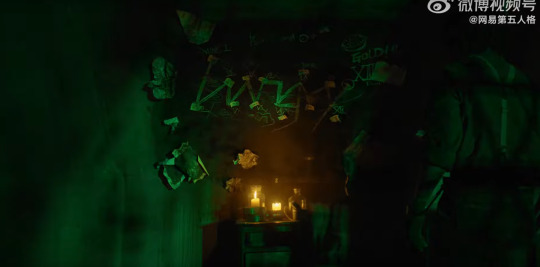
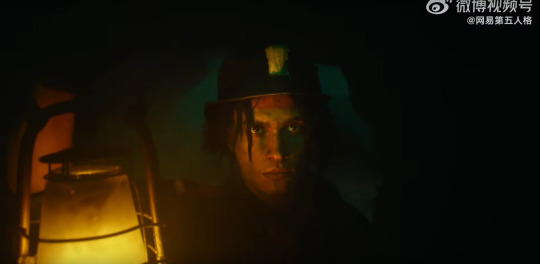
Afterwards we saw him passed out, wake up then soon after very visibly freaked out/scared of something (maybe he saw the green eye in Golden Cave, rushing to set up the dynamite in a panic, and he keeps looking back at the green glow in the room behind him.

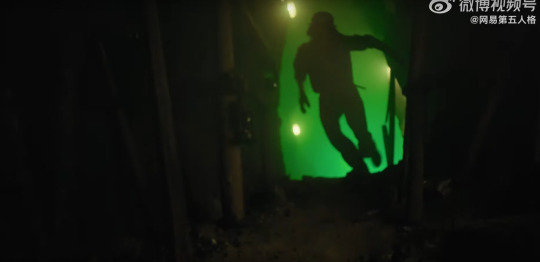
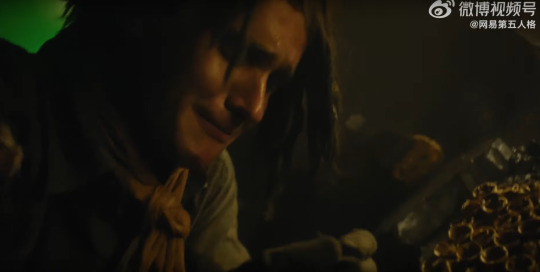
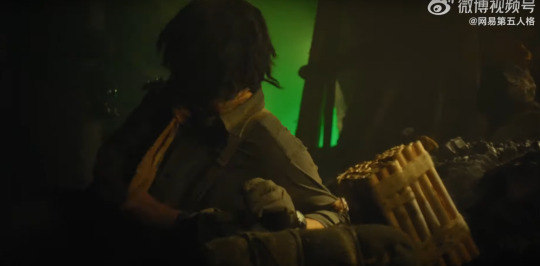
In the backstory trailer, we also see him having another mental struggle, fighting with himself and a sort of visible division between regular Norton and Hunter Norton like they're not quite the same person or at least like Norton's struggling against Hunter Norton.


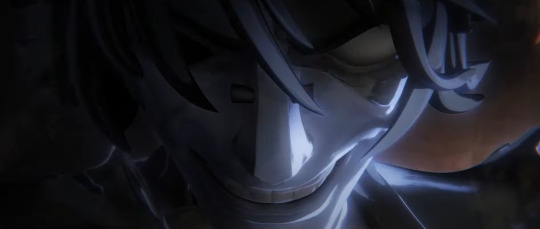
There was how in Time of Reunion, we see Hunter Norton's eye become the moon, which relates to how the moon in Cyaegha's story during a dream the main character turns green then turns into Cyaegha.



As for in game, Golden Cave itself has a large green eye in it, and Cyaegha is a literal large green eye with tentacles. Cyaegha is sealed underground, under a mountain, which matches up with the eye in Golden Cave.
Norton is afraid of the "darkness" of the mine. His hunter backstory talks about a "fear of falling into the endless void" and his "fear" growing in the darkness. Cyaegha is "The One in Darkness", is sealed under the mountain "Dark Hill", and in the story "Darkness, My Name Is".


In Cyaegha's story, he can draw the locals to him and make them do a ritual for him. He does this at night while they're sleeping, and once they're done, they wake up with no memory of their actions Norton in the Golden Cave trailer writes "Don't Forget"

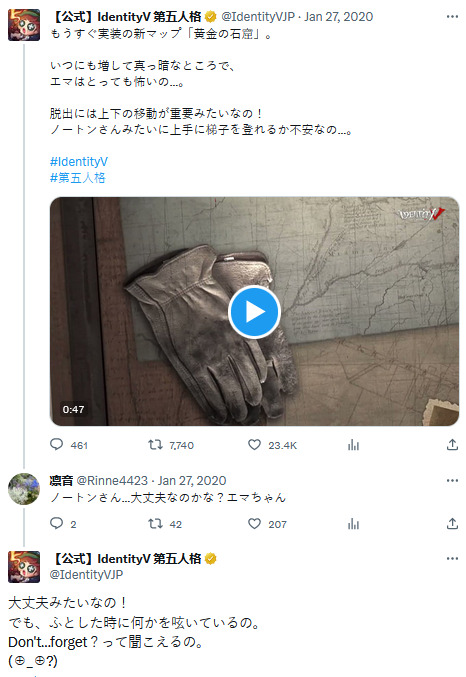
Cyaegha's ability is described as "dark mesmerism" in Call of Cthulhu, and it can be similar to the affect Norton's magnets are said to have on him.
Lily's essence, which is tied to Golden Cave, has their race happen on the night of a full moon.
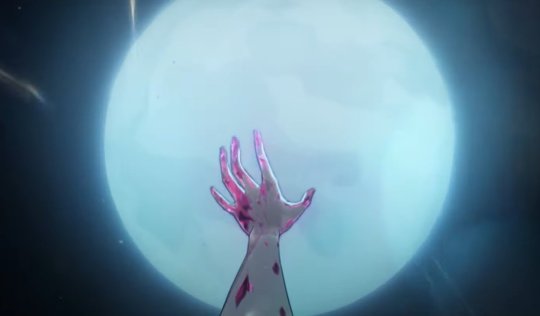
In Golden Cave, the ghouls don't have eyes, and Cyaegha has a thing where his followers can remove their eyes for special (night) "vision".
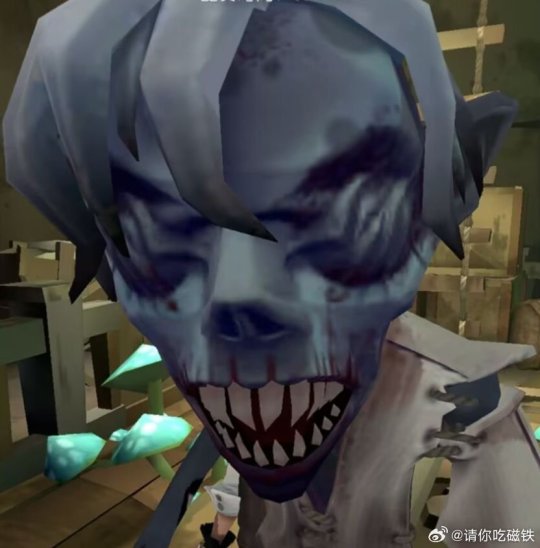
And about the ghouls, Cyaegha can grant his followers essentially auto regeneration, but they become permanently disfigured. Lily's essence also talks about people being affected by "phosphoresent illness" that changes how they look (corrupts).
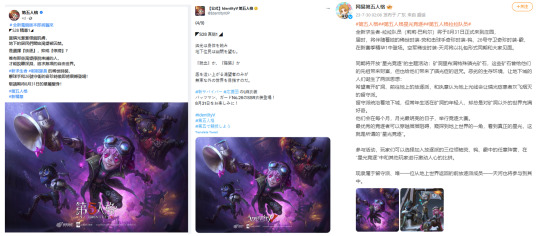
Cyaegha also has a skill "bestow vitality" that will heal everyone nearby but if anyone tries to act against him , it does damage.
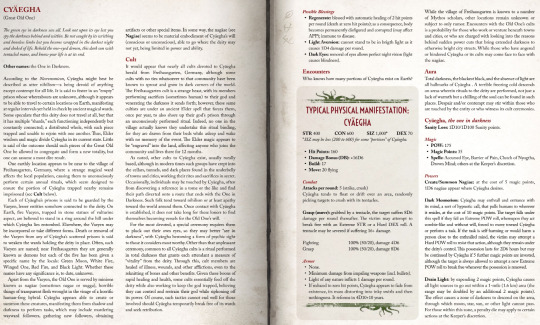
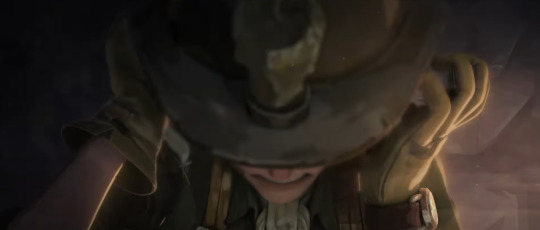
#idv#identity v#norton campbell#prospector#hunter norton#fool's gold#fools gold#idv norton#identity v norton#idv prospector#identity v prospector#idv hunter norton#identity v hunter norton#idv fool's gold#identity v fool's gold#idv fools gold#identity v fools gold#sirenjose analyses and theories
86 notes
·
View notes
Text

Predictions for The Voyage of Oceanus
(I made guesses last year for the Zinaida event and managed to correctly guess Andrew was the culprit/killer before it was revealed, so I wanted to try to do that again this year before we got too much info or any answers)
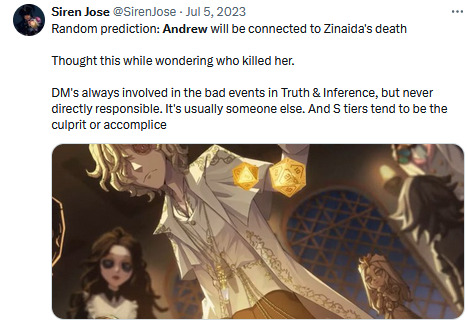
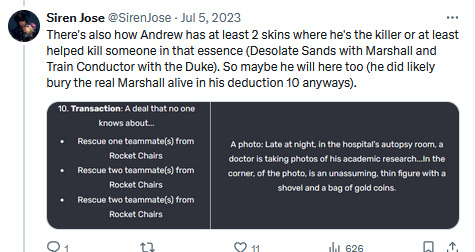
Main Predictions
Frederick is the antagonist (as in he will be the cause of the events that occur during this event or at least a contributor to some degree)
The jellyfish toxins will be the cause of everyone going crazy/behaving abnormally and whatever hallucinations they see (ex: my guess is it is the reason behind Alice's behavior and what she said she saw to Inference)




Charles will be involved in whatever incident Inference has to solve but won't be the actual true culprit (this is a guess based on Charles' backstory, as his actions indirectly lead to the (accidental) death of his friend. As it was indirect, that's why I guess in this event Charles will either be falsely suspected to be the culprit or may play a minor role in what happens but he won't do anything super bad, at least on purpose)
Violeta may seem dead but may not actually be truly dead (based on how she likely survives in canon after Joker leaves her to die in the snow, and how I wonder if she'll be involved in the "guest performance" referenced in Mike's 3rd letter)
Side Notes/Predictions
That agreement Branley had many of the personnel aboard the ship on his voyage sign is suspicious, the same one that Mr. Worthington didn't have to sign as he wasn't part of the "core personnel". Secretive agreements usually imply something up. "Trying to hide their research discoveries" feels like whatever they found out could be important, and the crew 25 years later will likely discover whatever it was considering Inference makes a comment about doing so during the event. Not sure yet about this, just wanted to call out it's suspicious and stood out to me.
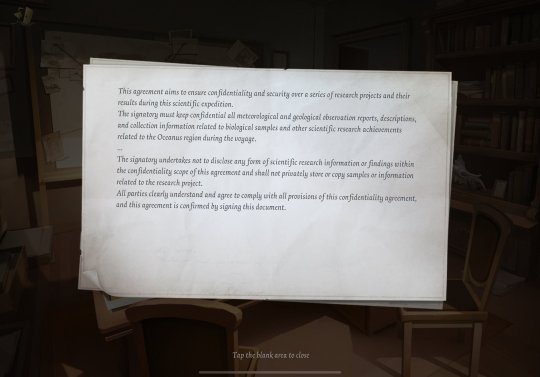
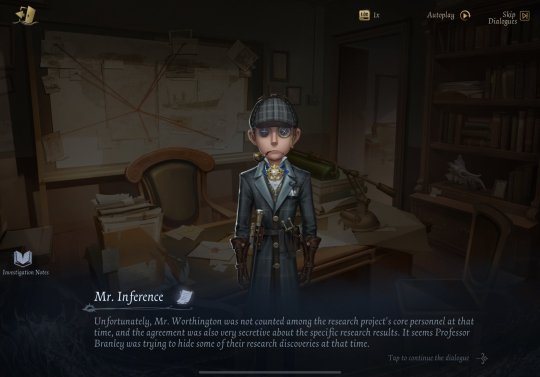
Speaking of suspicious, there's also that letter from whoever provided Inference with his disguise. No idea who this is. I did try to think about who it could be, but many of my guesses didn't feel quite right (I wondered about Wu Chang, but we know nothing about him or why he'd help. There's Paranormal Detective, but he wouldn't do something like this. There's Fiona, who does do disguises, but I'm not quite sure. There's White, but like Paranormal Detective, as Inference knows him, I doubt he'd do something in this fashion. My big random guess is DM, even if just because he'd get a laugh out of making Inference dress in the type of outfit Inference detests. That and DM seems to be the reason Inference gets involved in a lot of the cases we see during these anniversary events. So yea, he's so far my first guess, but who knows.)
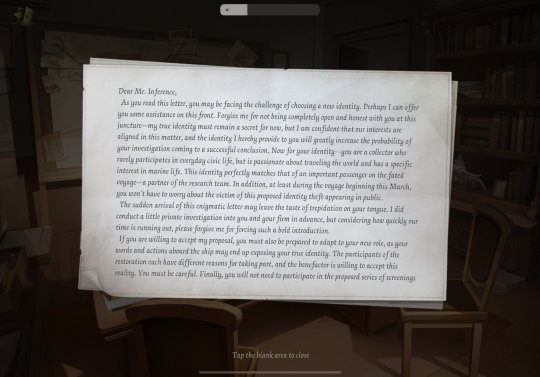
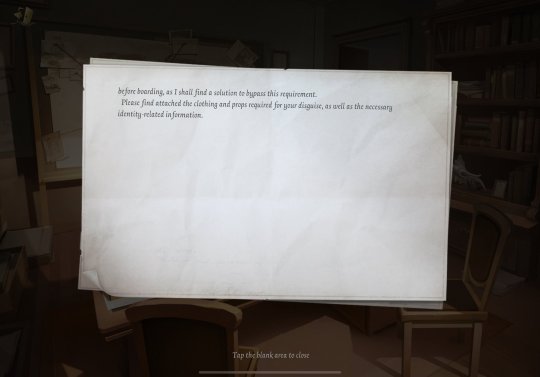
Frederick was the "benefactor" to spend a "huge amount of money" building this copycat ship and getting all the exact details, down to the roles people play, as similar as possible. So with how long he spent to prepare this, it contributes to the idea that Frederick could be behind whatever incident occurs during this event aboard the ship.
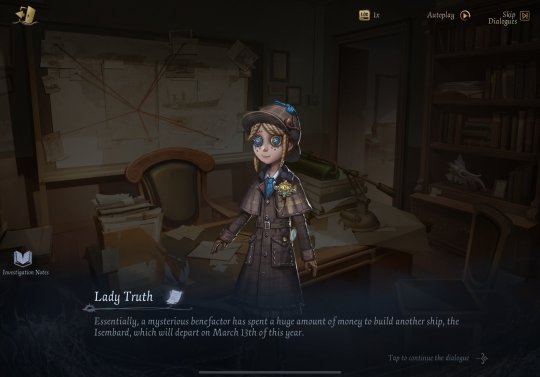
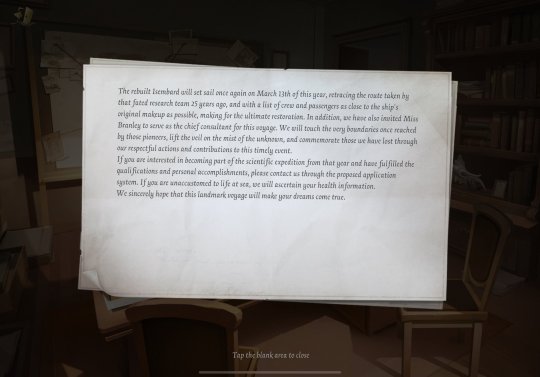
I don't quite know why, but for some reason Keigan mentioning the "blue jellyfish pendant" stood out a lot to me. (Honestly I at first didn't really read everything, but I paused after seeing that mentioned). Not quite sure why, but reading it made me wonder if whatever this was would be important, or if it appearing or disappearing would be important for this event. I actually reread everything after that, which was when I realized it belonged to this "Professor Schelling". It was only then that I made the connection "Hey, Frederick's S-tier has blue jellyfish themes all over his outfit". Maybe if Frederick was tied to this Schelling person, that could explain why he'd put so much effort into recreating this ship and voyage. Then from there, I noticed it mentions Schelling's "acedemic achievements" weren't "directly inherited", with his children being "too young" to learn anything of "scientific value". Not "directly inherited" makes me think of Frederick in canon who didn't inherit his family's musical talent. And I had to reread the children bit twice to realize it's not saying he didn't have children. He did, they were just too young. So his children were the ones that didn't "inherit" that stuff from the previous line. Ergo, Frederick might be the kid of this Professor Schelling. So even if he wasn't very knowledgeable about science initially, considering the science books in his room, it seems he might've tried to fix that, potentially similar to Frederick trying to be a famous musician despite not having the same musical skills as his family. If Frederick is recreating what happened 25 years ago, and his father was involved, maybe he's trying to prove he is just as good as his father? I'm also thinking of parallels to Frederick in canon and why he's going after the Blue Hope gem...

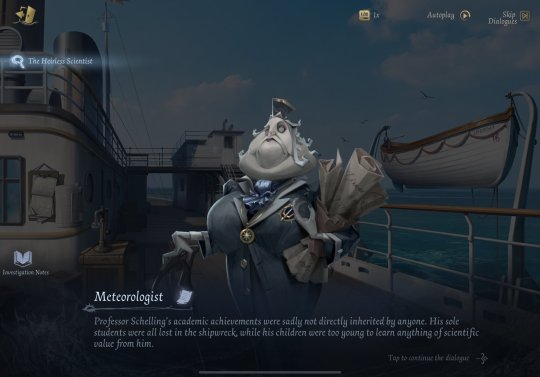
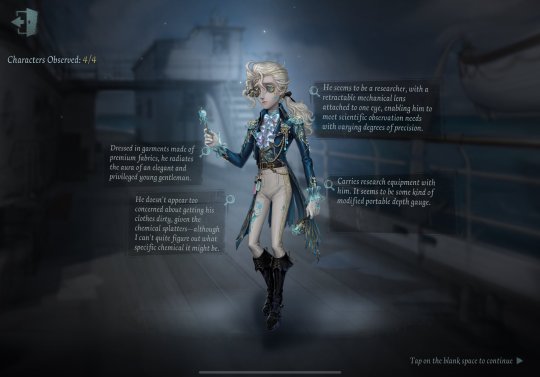

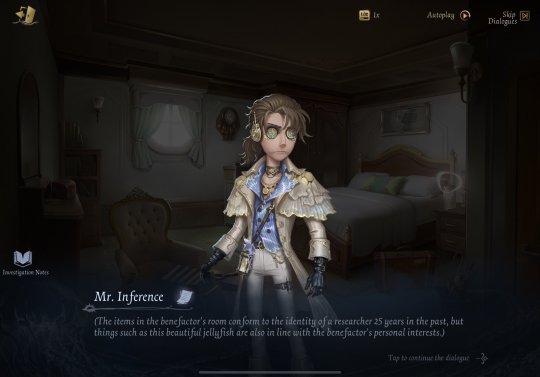
Similar to how I wonder if Orpheus drugs the participants by including it in their meals, I wonder if the jellyfish toxins will poison people by being included in people's meals. Frederick did mention it can affect people if ingested. That would potentially mean Demi might be working with Frederick, since she prepares people's foods. Considering how Demi seems to be working with the manor owner and her roles in other events, this wouldn't surprise me too much. Her name is "Siren" after all, so this sort of role, especially if she's giving people toxins that could cause hallucinations like a siren's song might, seems fitting for her codename.

The mention of electromagnetic fields reminds me of some of the research/theories I wrote regarding Jose, as I remember discussing how electromagnetic fields, like what is mentioned in Wu Chang's letters regarding events during Jose's game, can affect compasses, which can lead to people getting lost, which I remember due to my research regarding Jose's Bobolink skin (bobolinks are birds that can navigate via electromagnetic fields, and will fly in the wrong direction due to mesing with those fields). I remember the event mentioned Inference's clock being frozen at 6:30. I wonder if this'll be important somehow. (I also just find all the potential connections to stuff I did for Jose funny and had to call it out. Works out I already did all this research so I know about some of this already ^_^')
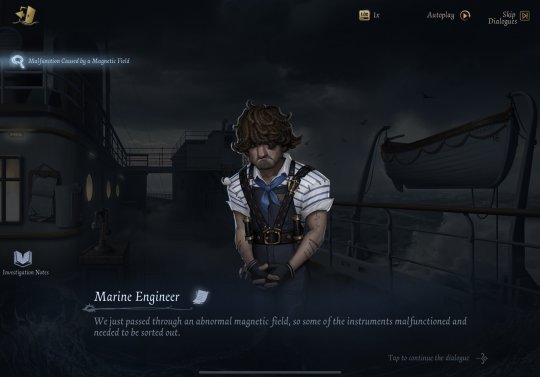
#idv#identity v#Truth & Inference#T&I#Mr. Inference#Naib#Mercenary#inference#idv mr. inference#idv inference#idv naib#idv mercenary#idv T&I#idv truth & inference#identity v mr. inference#identity v inference#identity v naib#identity v mercenary#identity v T&I#identity v truth & inference#sirenjose analyses and theories
23 notes
·
View notes